bio practical 3
5.0(3)
5.0(3)
Card Sorting
1/81
There's no tags or description
Looks like no tags are added yet.
Study Analytics
Name | Mastery | Learn | Test | Matching | Spaced | Call with Kai |
|---|
No study sessions yet.
82 Terms
1
New cards
define radial symmetry
different cutting planes made through the center produces identical pieces
2
New cards
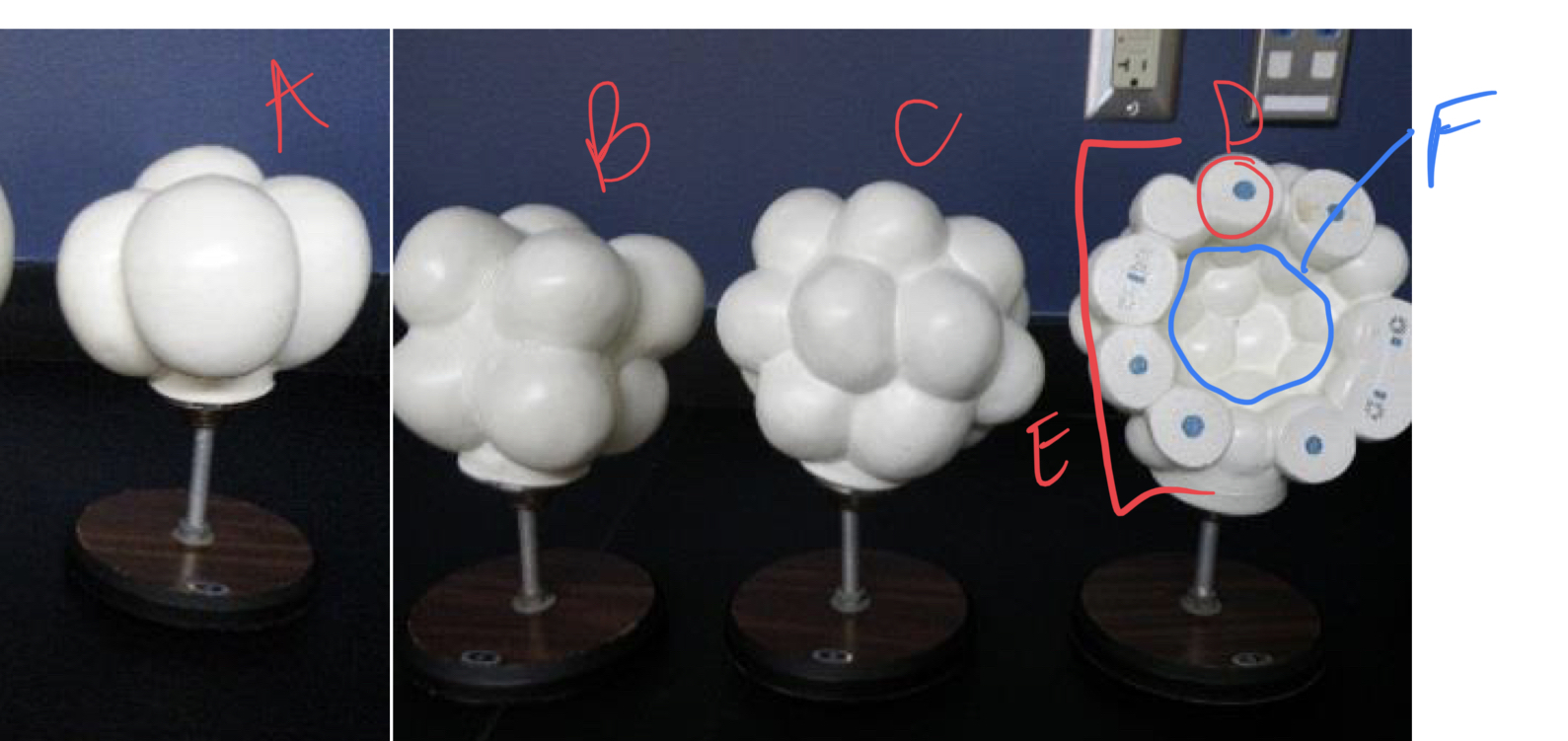
* does zygote divide by mitosis or meiosis?
* ____: hollow ball of cells during embryonic development
* label
* are blastomeres haploid or diploid?
* ____: hollow ball of cells during embryonic development
* label
* are blastomeres haploid or diploid?
mitosis, blastula, 4 celled stage, 8 celled stage, 16 celled stage, blastomere, blastula, blastocoel, diploid
3
New cards
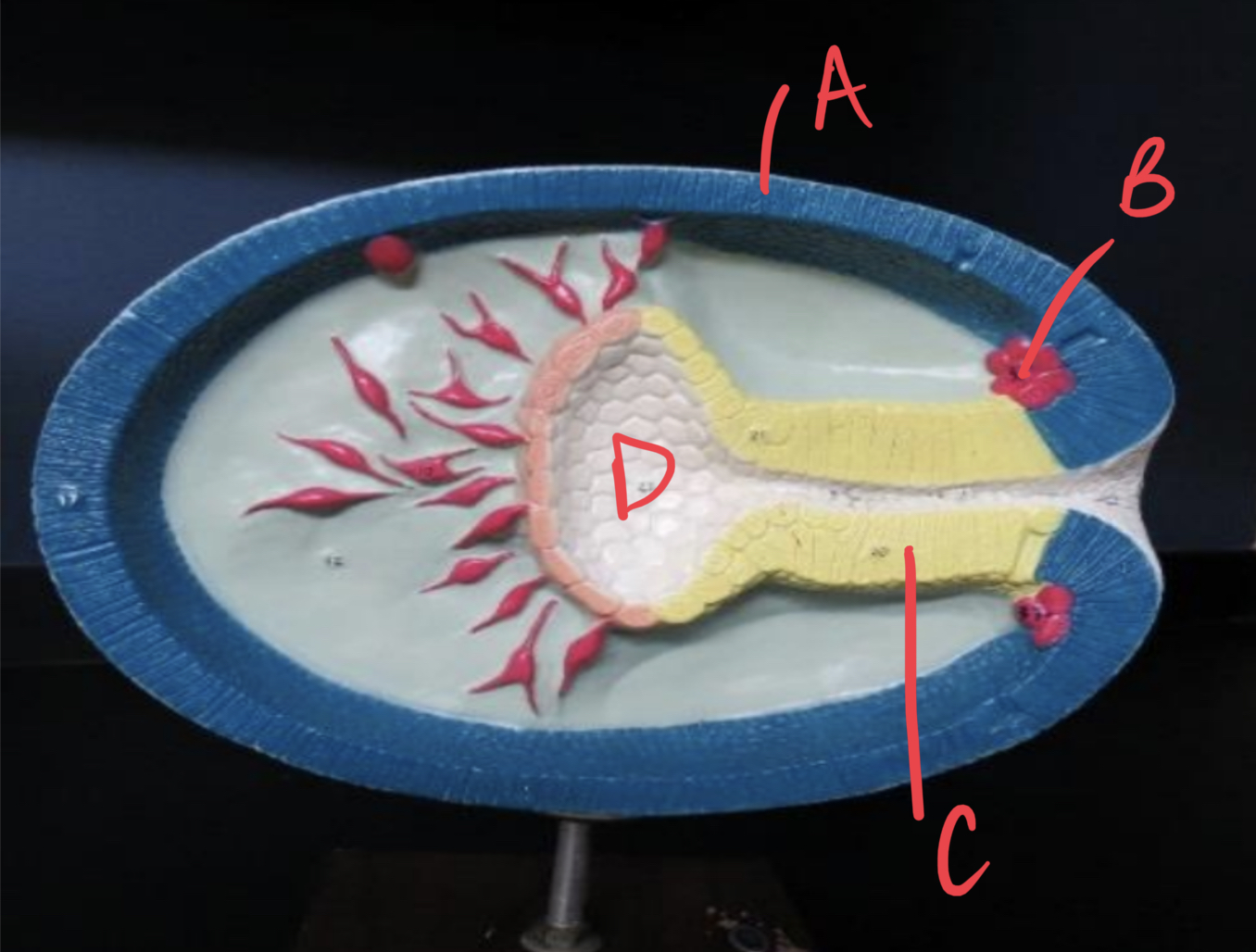
* what is this model of?
* label the following
* ____: stage where blastula folds inwards
a. this creates the ____
* label the following
* ____: stage where blastula folds inwards
a. this creates the ____
gastrula, ectoderm, mesoderm, endoderm, archenteron, gastrulation, archenteron
4
New cards
how to differentiate between blastula and morula model?
blastula has more cells
5
New cards
* what does endoderm make?
* what does mesoderm make?
* what does ectoderm make?
* what does mesoderm make?
* what does ectoderm make?
digestive system inner lining and respiratory system, muscles and organs, skin and nervous system
6
New cards
PORIFERA
* germ layers?
* body cavity?
* symmetry?
* digestive system?
a. how do they capture food?
* members of this phylum?
* what distinguishes sponges from plants?
a: lack chloroplasts, structure comes from spicules/spongin, heterotrophic
* endoskeleton composition?
* germ layers?
* body cavity?
* symmetry?
* digestive system?
a. how do they capture food?
* members of this phylum?
* what distinguishes sponges from plants?
a: lack chloroplasts, structure comes from spicules/spongin, heterotrophic
* endoskeleton composition?
no, no, asymmetrical, none, food goes in ostia and out osculum, sponges, spicules and spongin
7
New cards
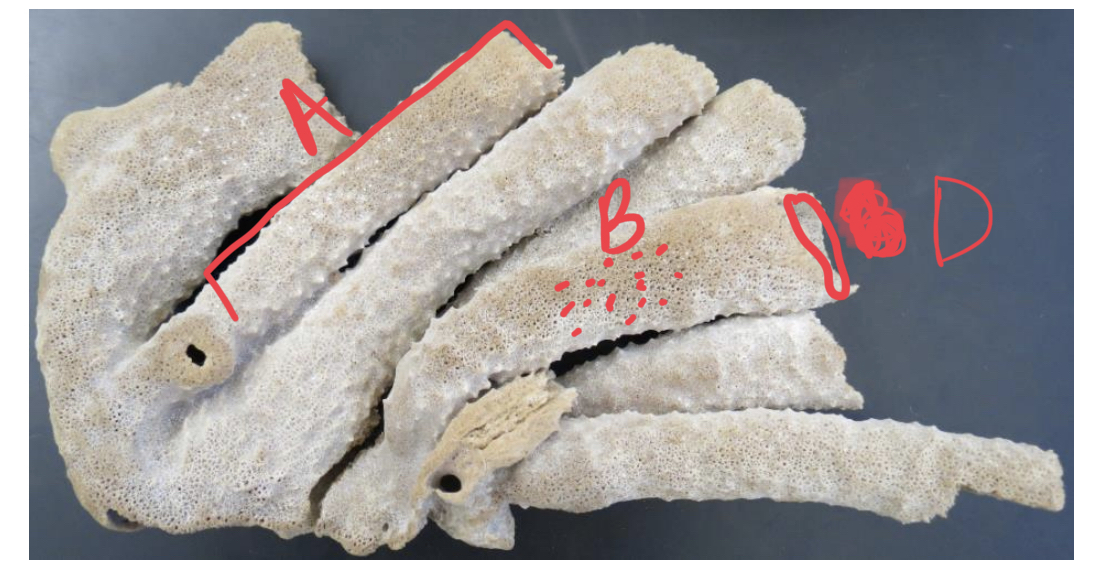
* name?
* label
* label
colonial sponge, spongocoel, ostium, osculum
8
New cards
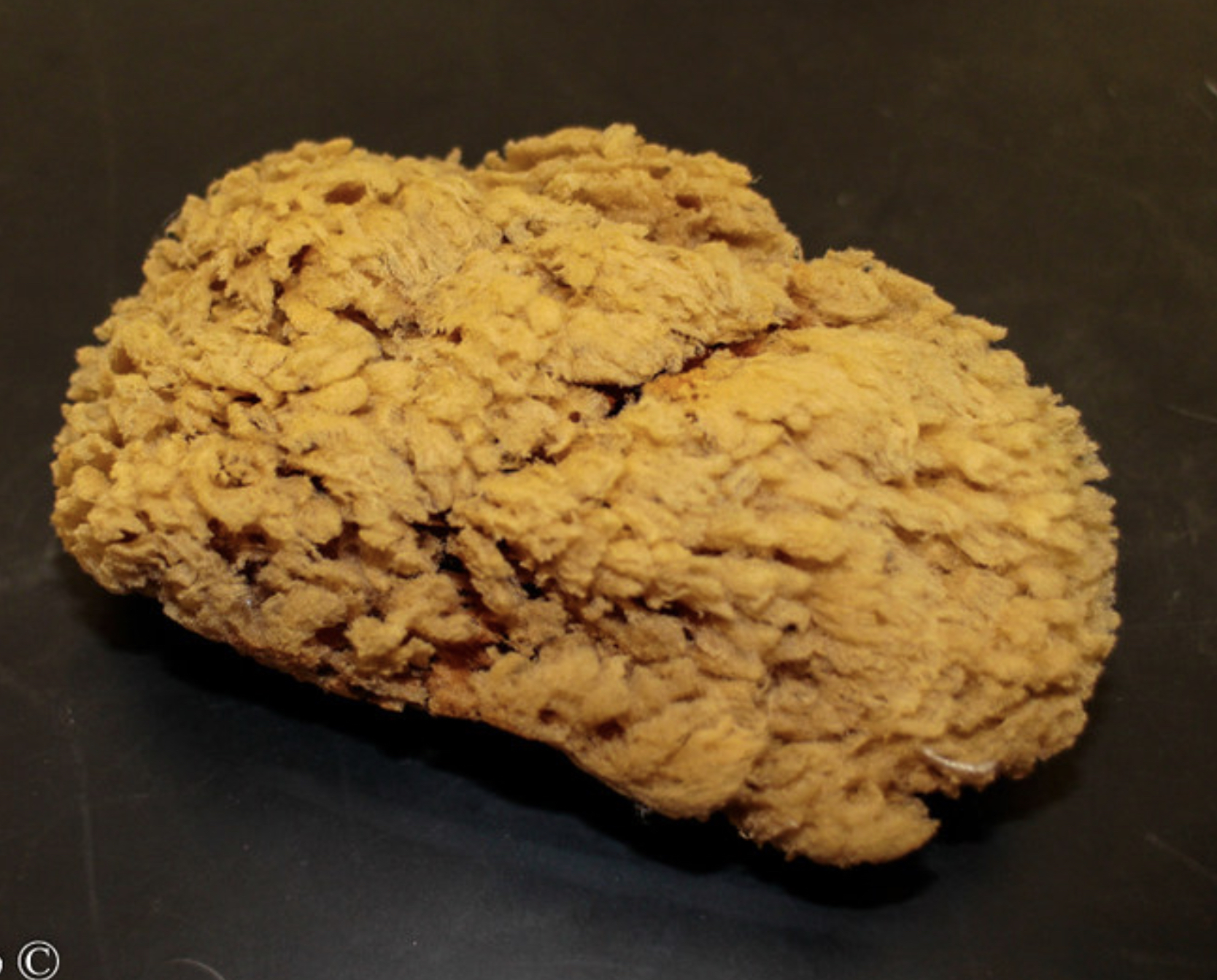
* name?
* endoskeleton composition?
* endoskeleton composition?
bath sponge, spongin
9
New cards
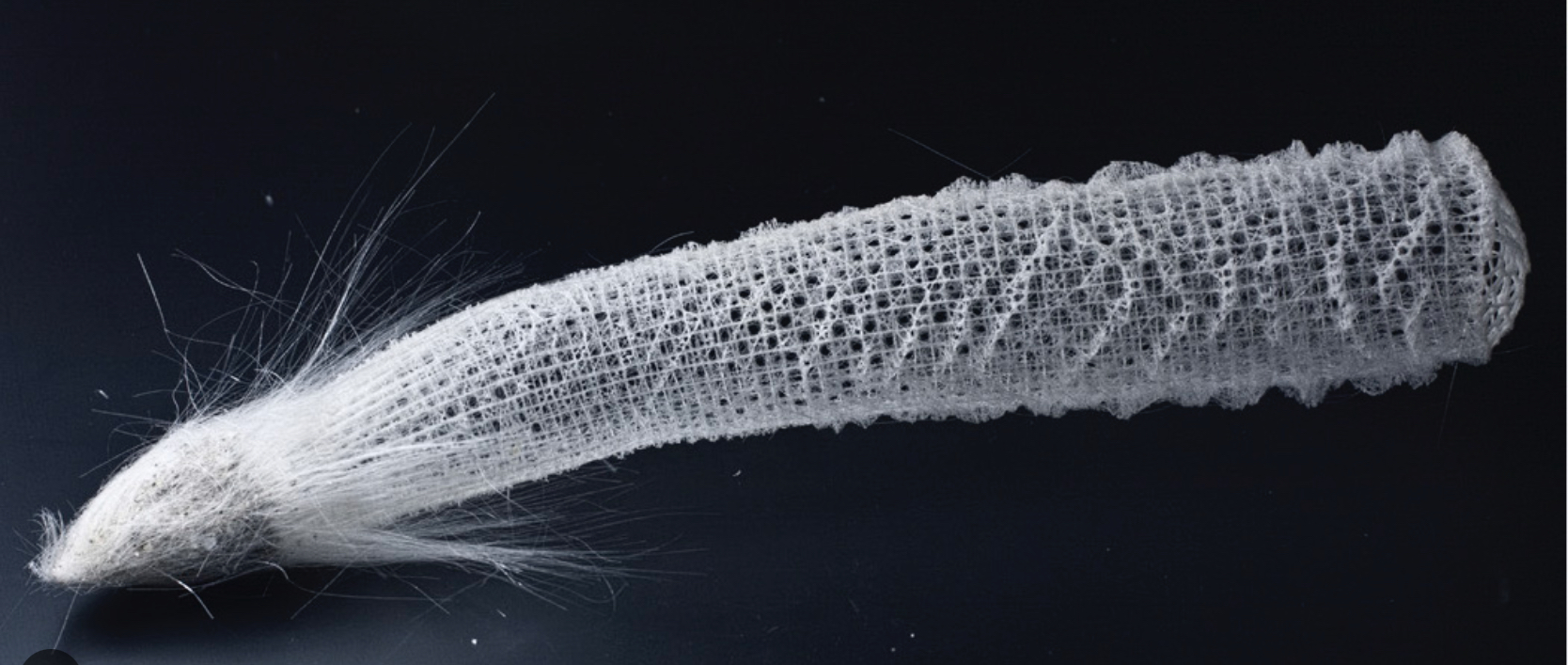
* name?
* endoskeleton composition?
* endoskeleton composition?
venus flower basket, spicules
10
New cards
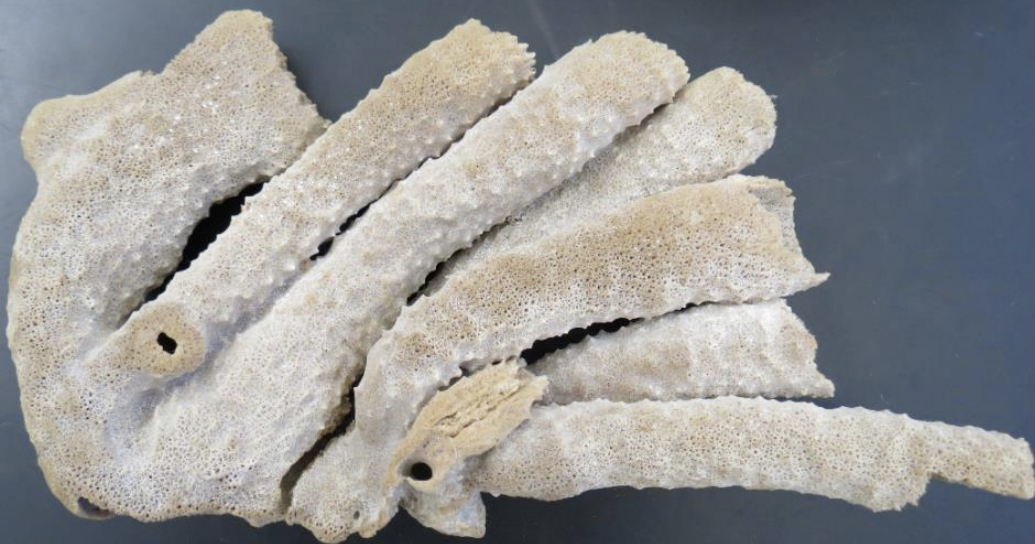
* name?
* endoskeleton composition?
* endoskeleton composition?
colonial sponge, spongin and spicules
11
New cards
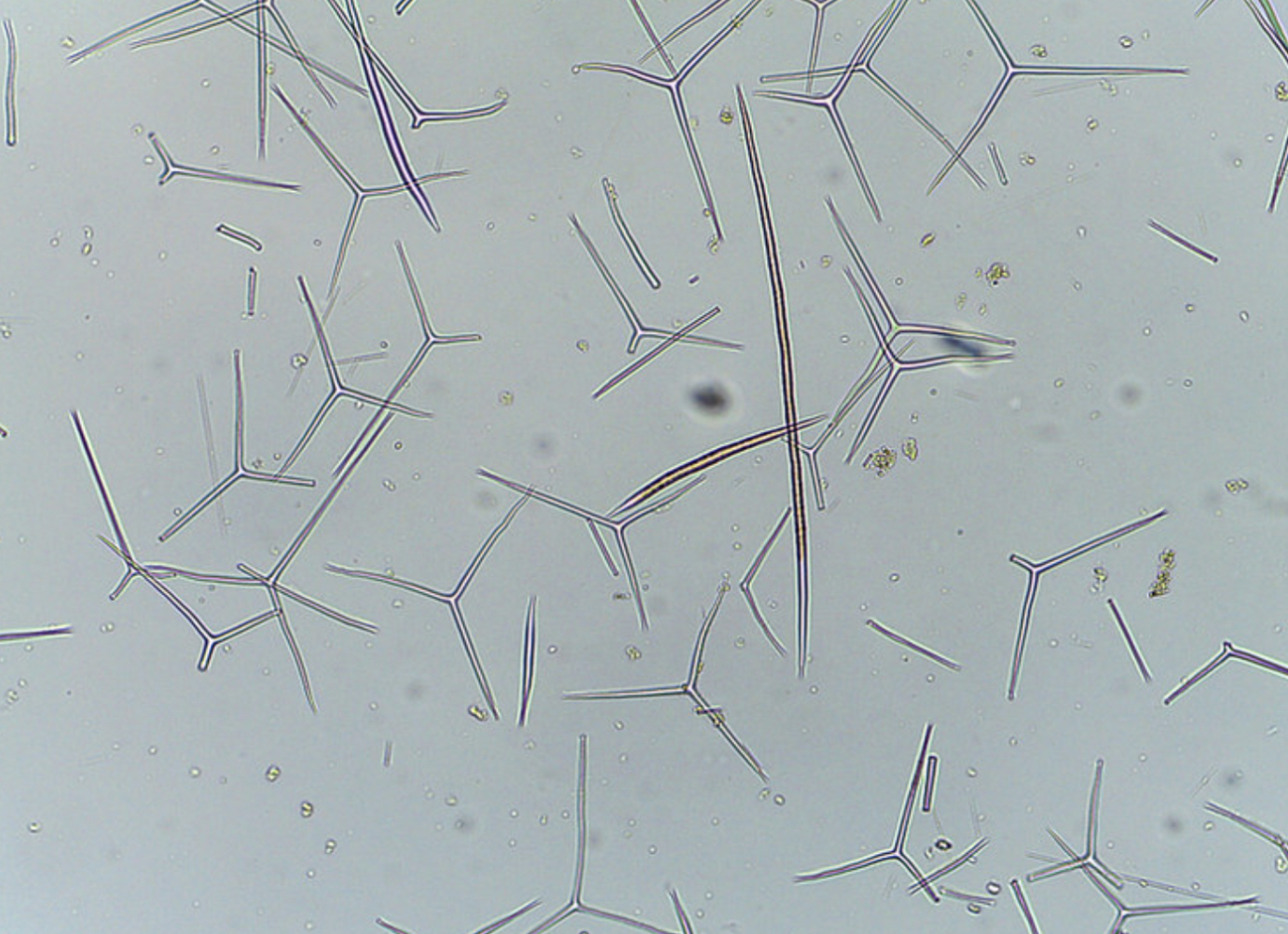
* fossil name
* what is it?
* what is it?
asterospongia, glass spicules
12
New cards
CNIDARIA
* germ layers?
* body cavity?
* symmetry?
* digestive system?
a. what type
* what 2 life forms?
* ____: needle that discharges from cnidocyte to sting/capture prey
* ____: earliest form of nervous system
\
* germ layers?
* body cavity?
* symmetry?
* digestive system?
a. what type
* what 2 life forms?
* ____: needle that discharges from cnidocyte to sting/capture prey
* ____: earliest form of nervous system
\
2, acoelomate, radial, incomplete, gastrovascular cavity, polyp and medusa, nematocyst, nerve net
13
New cards
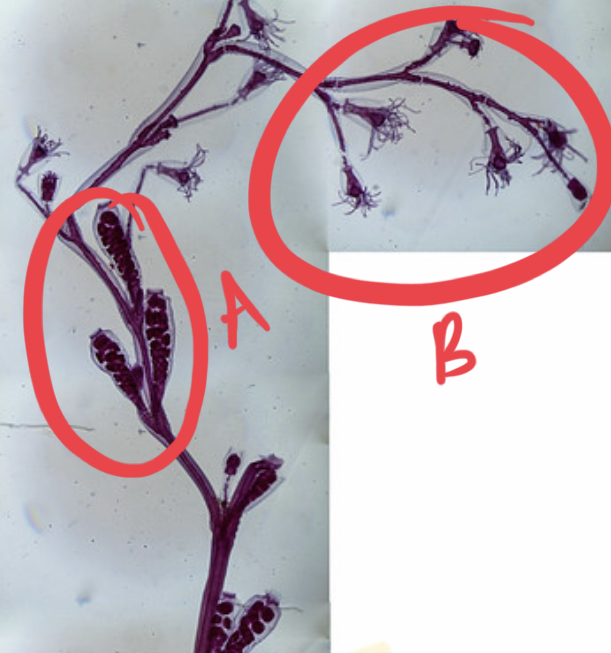
* name?
* label
* why does a feeding polyp need tentacles?
* why does a reproductive polyp have medusa buds?
* label
* why does a feeding polyp need tentacles?
* why does a reproductive polyp have medusa buds?
obelia, reproductive polyps, feeding polyps, capture food, reproduce
14
New cards
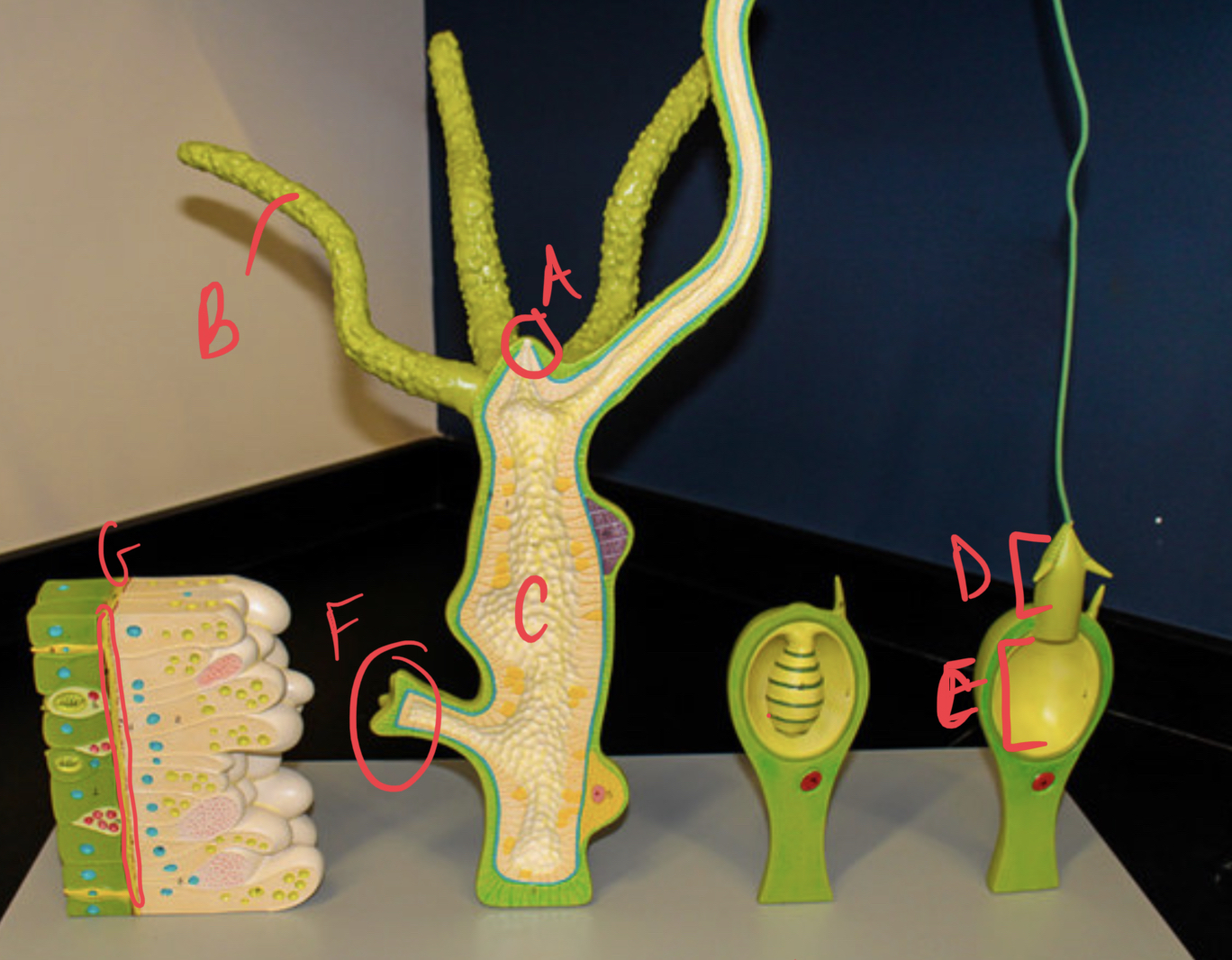
* name?
* label
* label
hydra, mouth, tentacle, gastrovascular cavity, nematocyst, cnidocyte, asexual bud, nerve net
15
New cards
CTENOPHORA
* how are they different from cnidarians?
* member of this phylum?
* how is the gut (digestive system) in ctenophores?
* how are they different from cnidarians?
* member of this phylum?
* how is the gut (digestive system) in ctenophores?
no cnidocytes and have complete gut, sea walnut, complete
16
New cards
PLATYHELMINTHES
* germ layers?
* body cavity?
* symmetry?
* digestive system?
* first animal to have ______
* germ layers?
* body cavity?
* symmetry?
* digestive system?
* first animal to have ______
3, acoelomate, bilateral, incomplete, cephalization
17
New cards
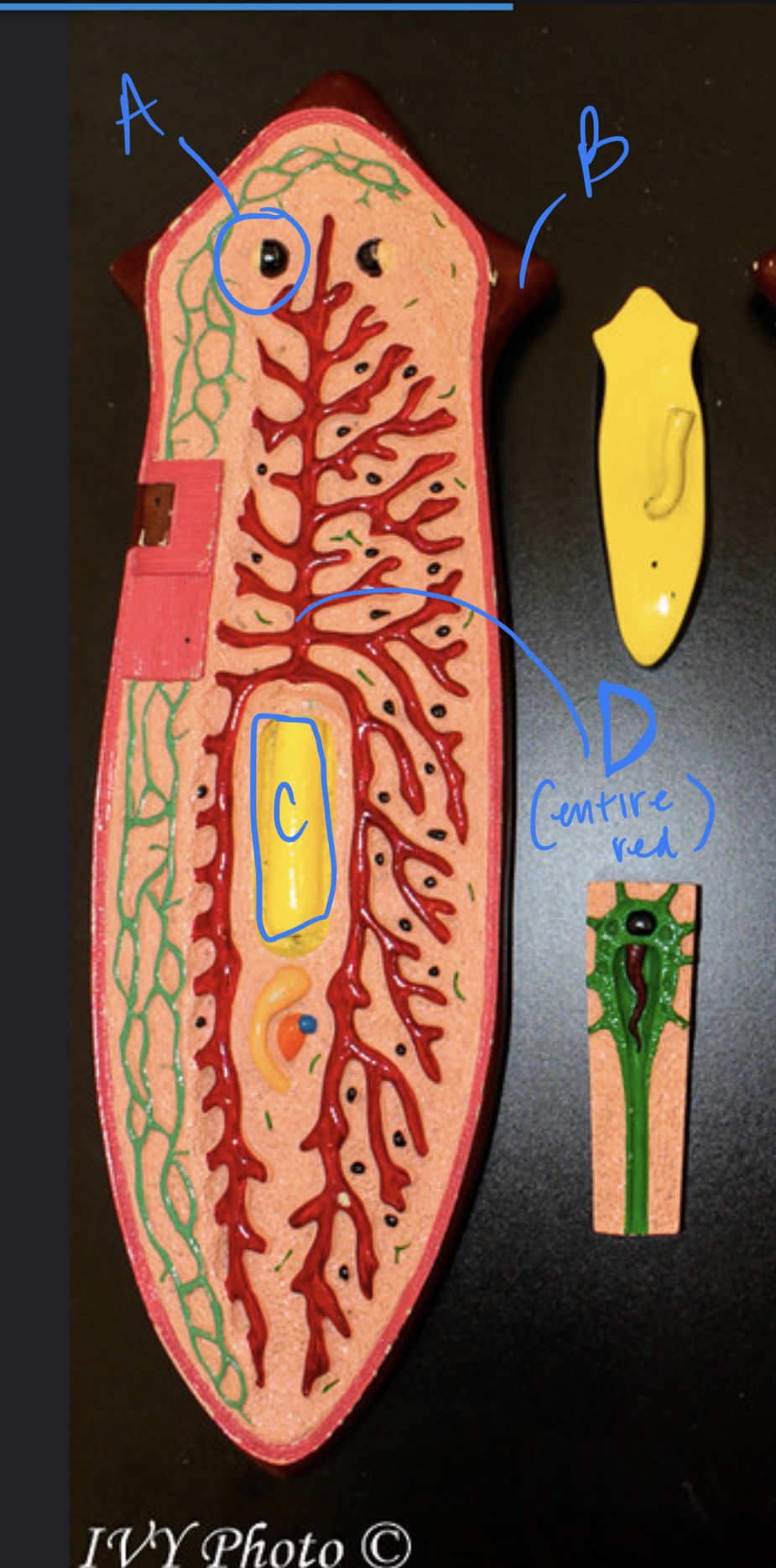
* name?
* label
* label
planarian, eyespot, auricle, pharynx, gastrovascular cavity
18
New cards
* where do liver flukes live in human bodies?
* what other hosts do they inhibit aside from humans?
* how do humans acquire them?
* what other hosts do they inhibit aside from humans?
* how do humans acquire them?
bile duct, snail and fish, eating infected fish
19
New cards
PLATYHELMINTHES
* flukes are hermaphrodites (have both male + female reproductive structures)
a. pros?
b. cons?
* flukes are hermaphrodites (have both male + female reproductive structures)
a. pros?
b. cons?
increased chance of reproduction, asexual, takes more energy
20
New cards
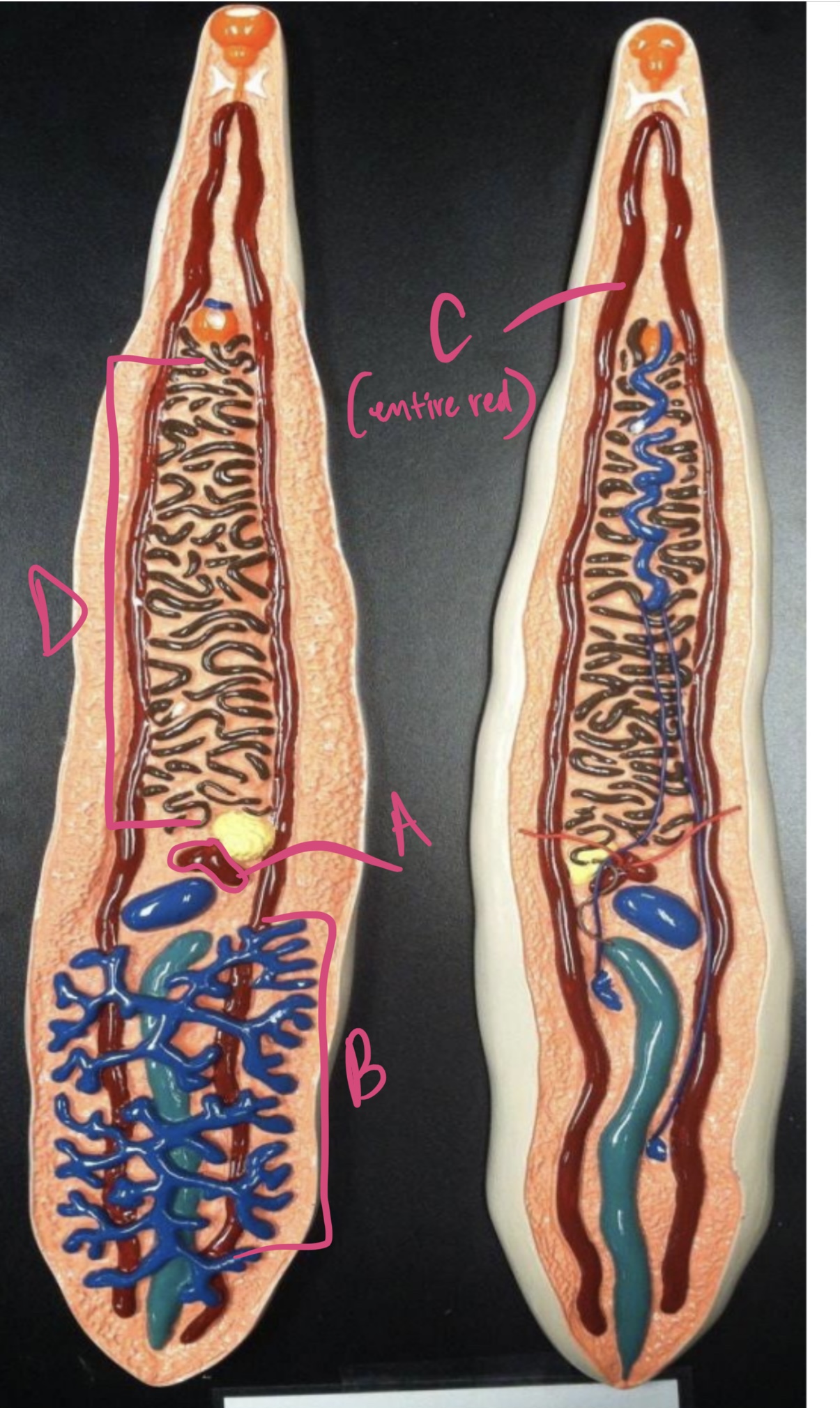
* name?
* label
* label
chinese liver fluke, uterus, testes, gastrovascular cavity, ovaries
21
New cards
PLATYHELMINTHES
* insect vector that transmits tapeworm → dogs?
* how does a person acquire them?
* how do tapeworms survive without digestive system?
* ____: for attaching onto host intestine
* insect vector that transmits tapeworm → dogs?
* how does a person acquire them?
* how do tapeworms survive without digestive system?
* ____: for attaching onto host intestine
fleas, animals, diffusion, hooks and suckers
22
New cards
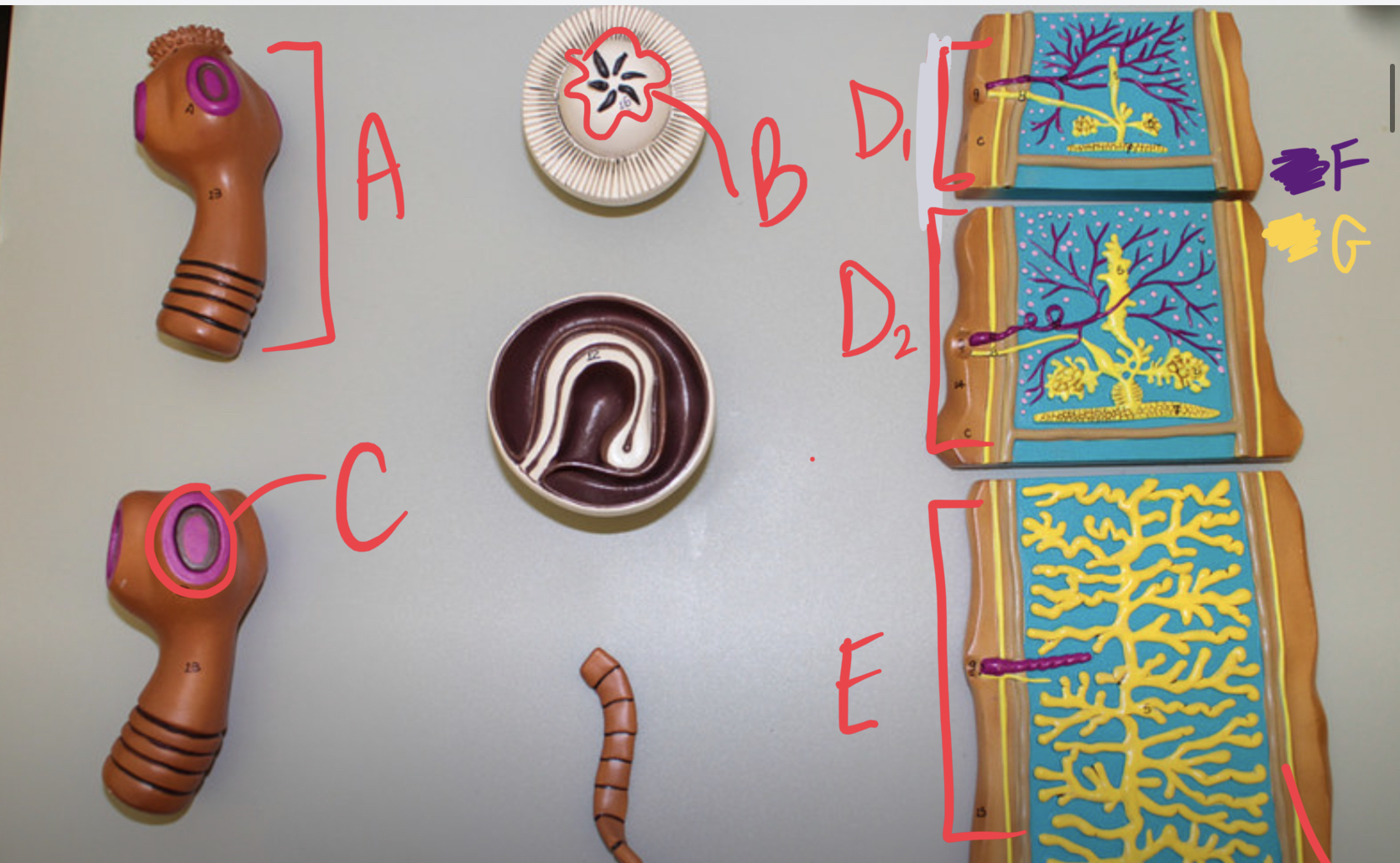
* name?
* label
* label
tapeworm, scolex, hooks, suckers, immature proglottid, mature proglottid, gravid proglottid, testes, ovary
23
New cards
ANNELIDA
* digestive system?
* coelom situation?
* ____: secretes mucus sac to hold eggs until hatched
* ____: allows for repeated body units + assist in locomotion
* digestive system?
* coelom situation?
* ____: secretes mucus sac to hold eggs until hatched
* ____: allows for repeated body units + assist in locomotion
complete, coelomate, clitellum, segmentation
24
New cards
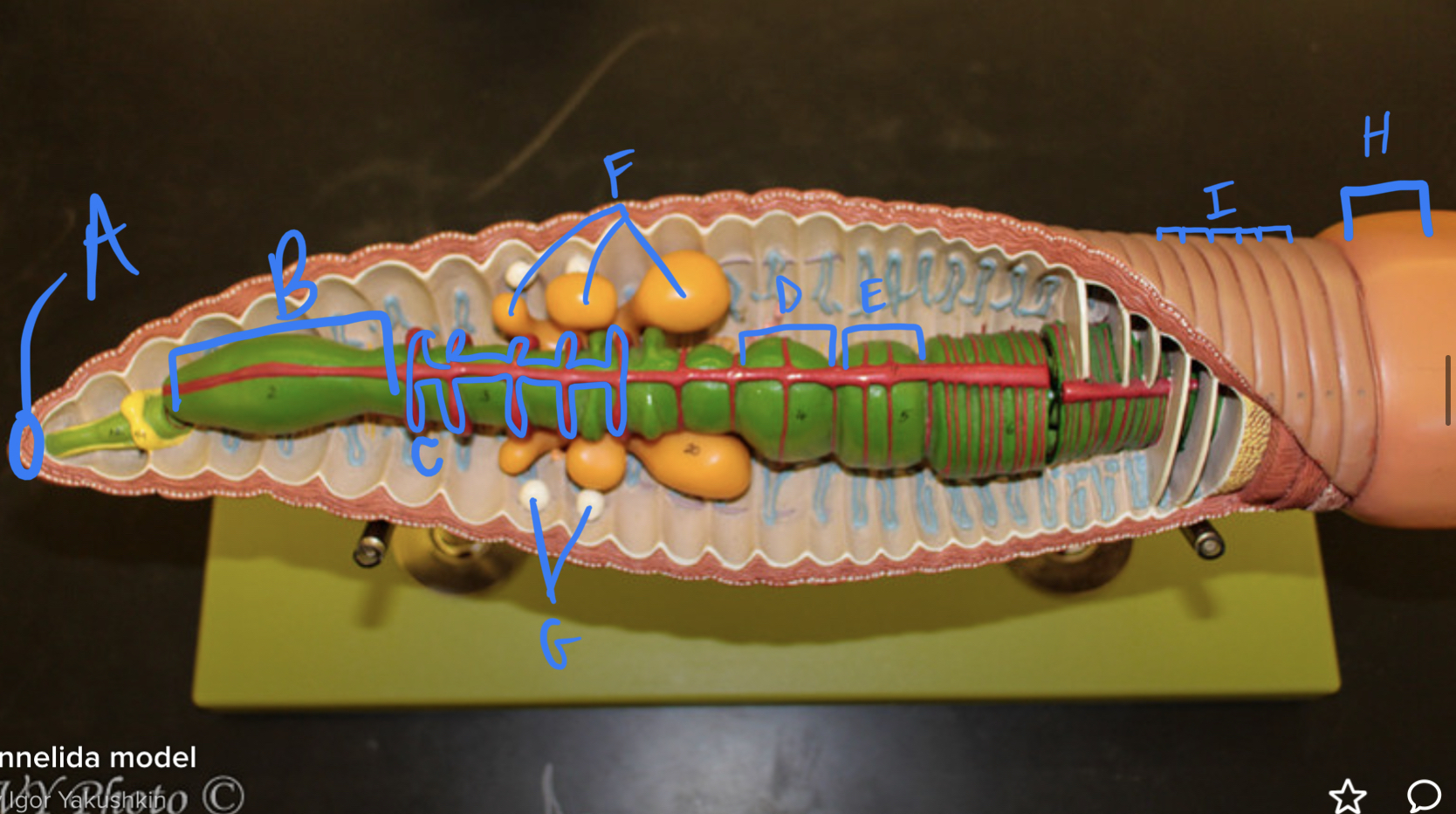
* name?
* label
* label
earthworm, mouth, pharynx, aorotic arches, crop, gizzard, seminal vesicles, seminal receptacles, clitellum, segmentation
25
New cards
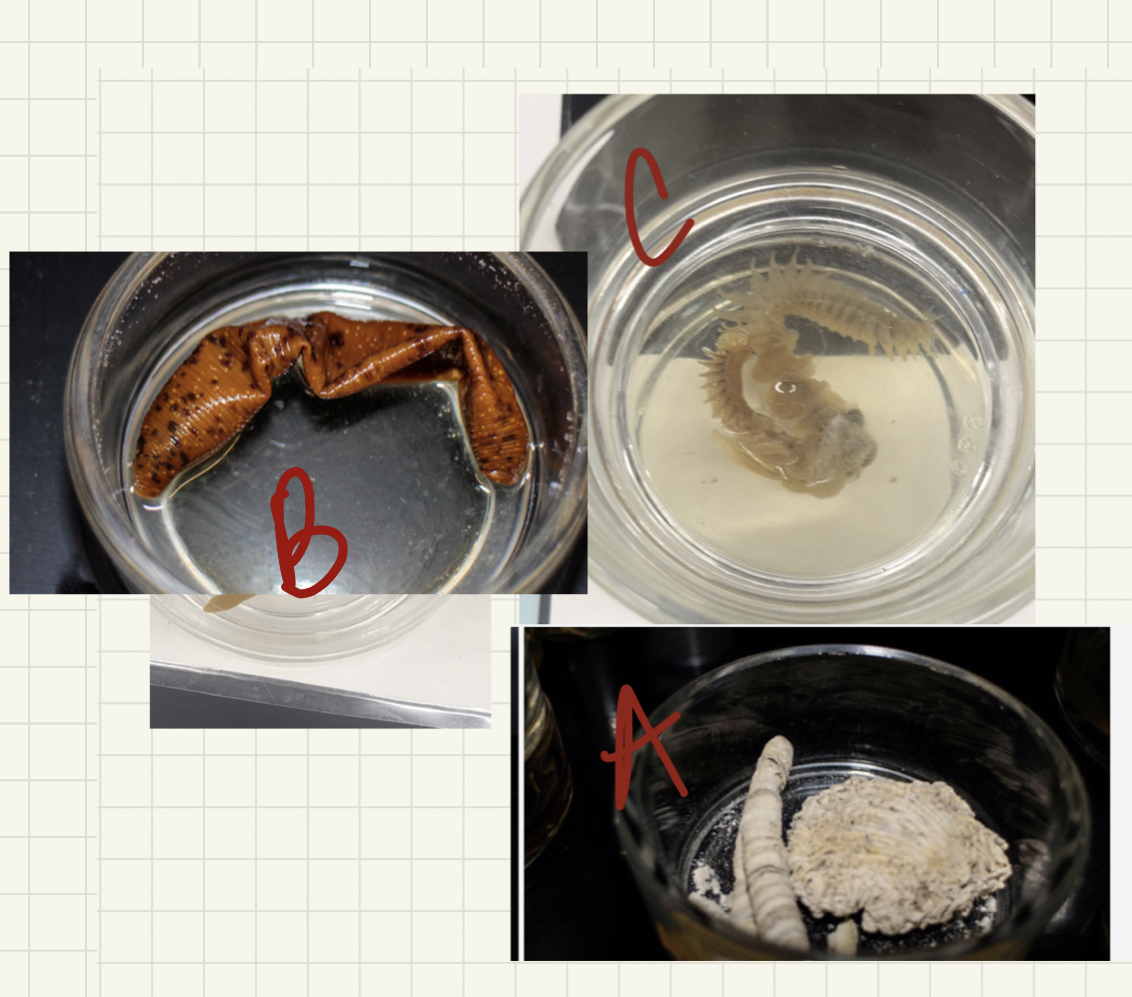
* names?
tube worm, leech, marine worm
26
New cards
MOLLUSCA
* 3 classes?
* 3 classes?
bivalvia, gastropoda, cephalopoda
27
New cards
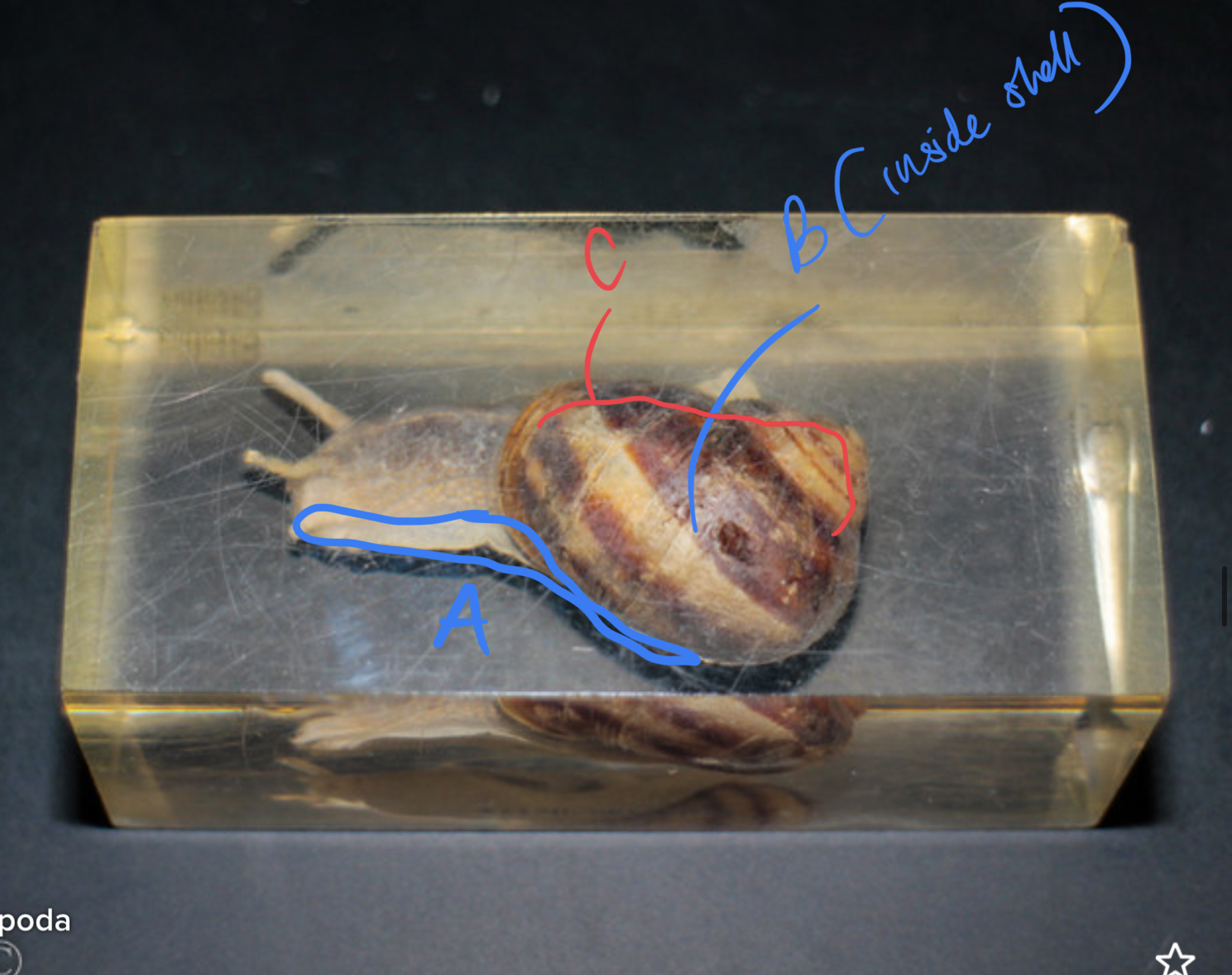
* name?
* label
* label
snail, muscular foot, visceral mass, mantle
28
New cards
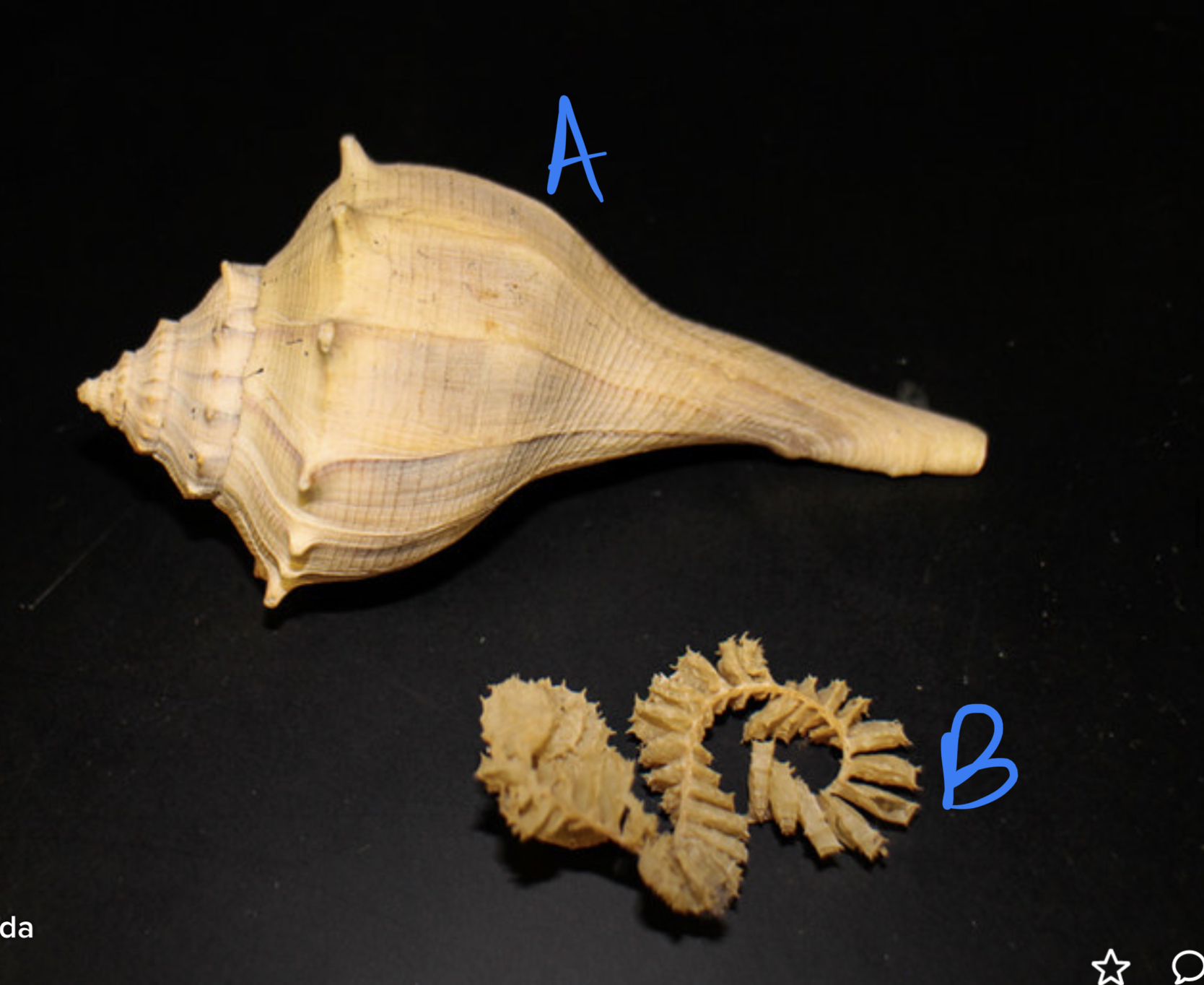
* names?
lightening whelk, lightening whelk egg case
29
New cards
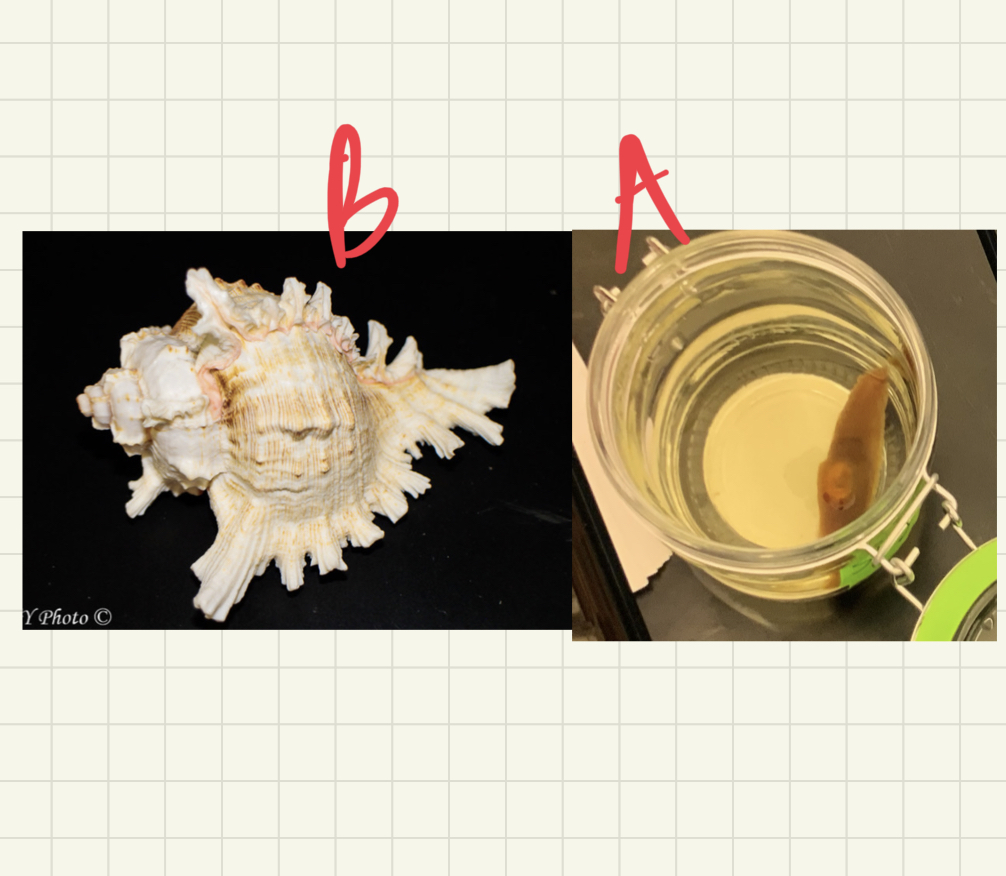
names?
slug, murex
30
New cards
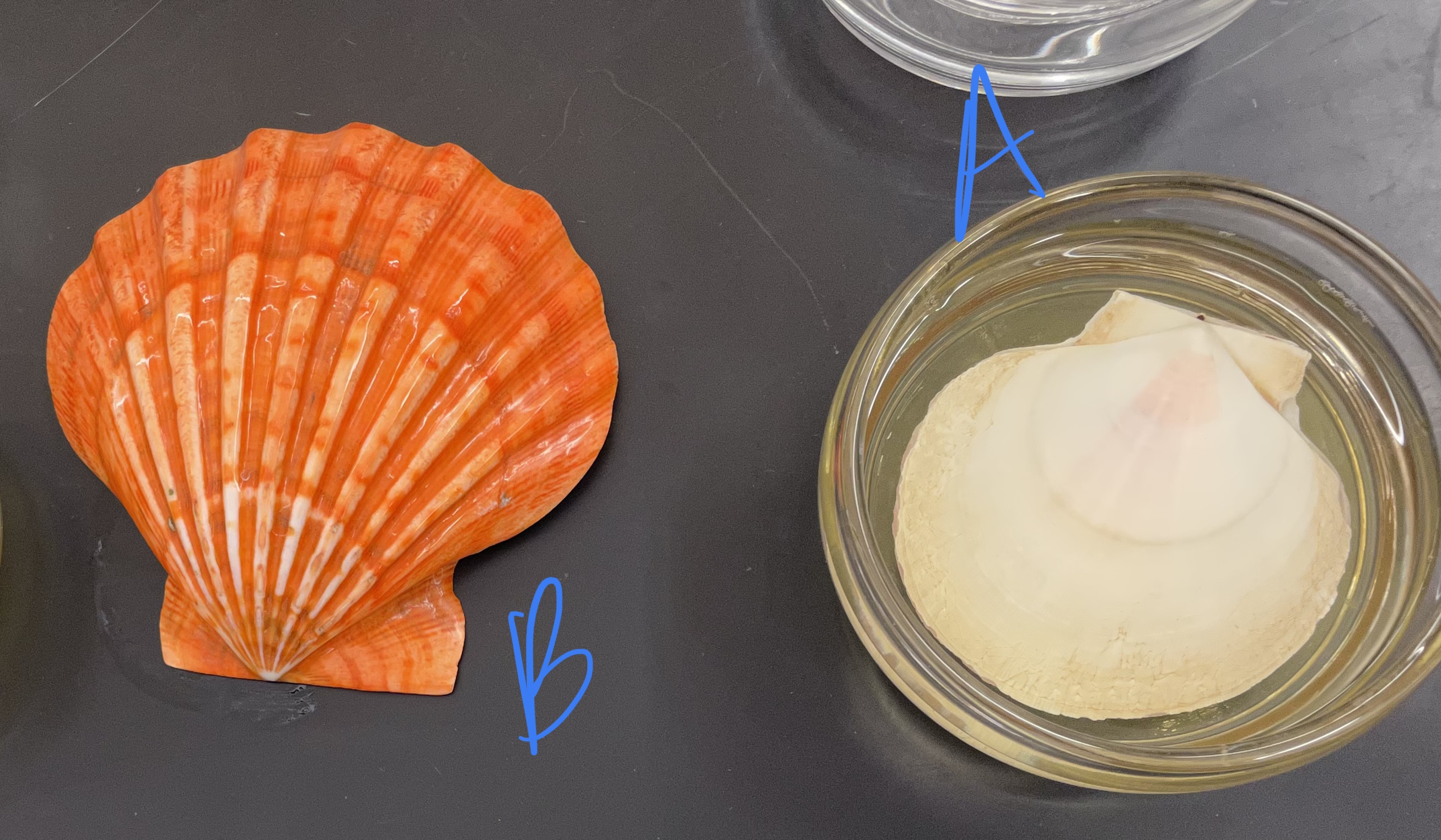
names?
clam, scallop
31
New cards
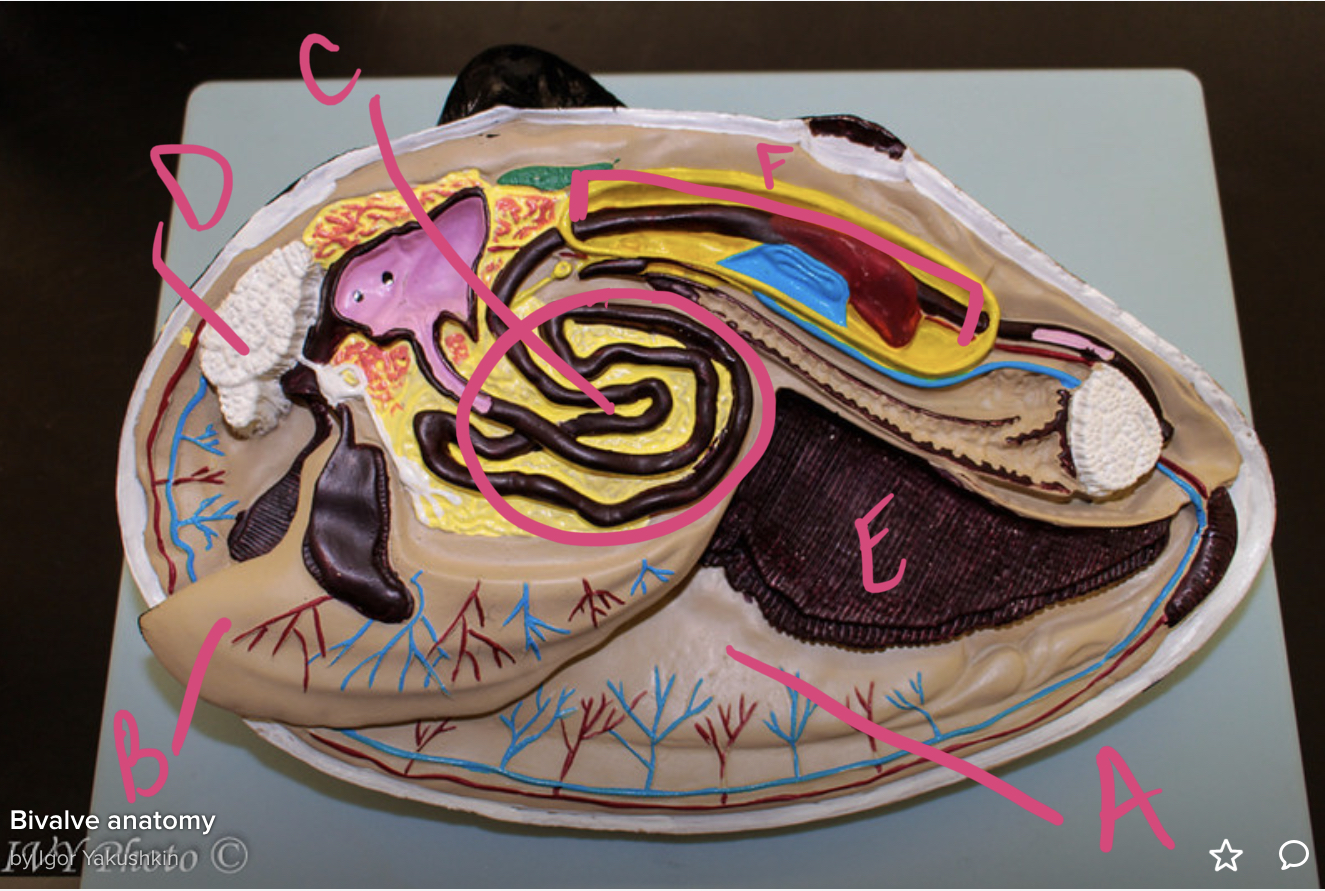
* name?
* label
* label
clam, mantle, foot, visceral mass, adductor muscle, gills, heart
32
New cards
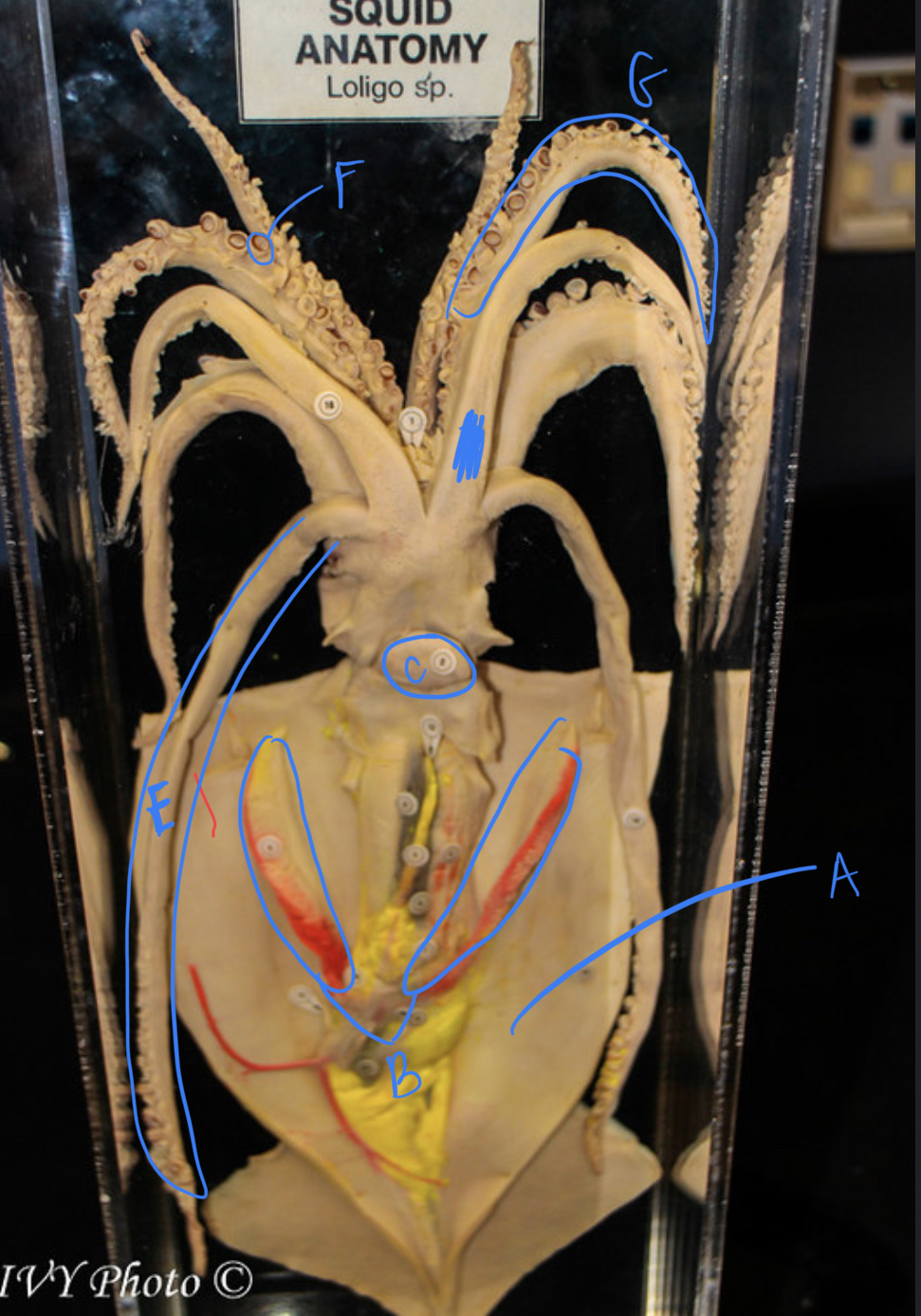
* name?
* label
* label
squid, mantle, gills, siphon, arm, sucker, tentacle
33
New cards
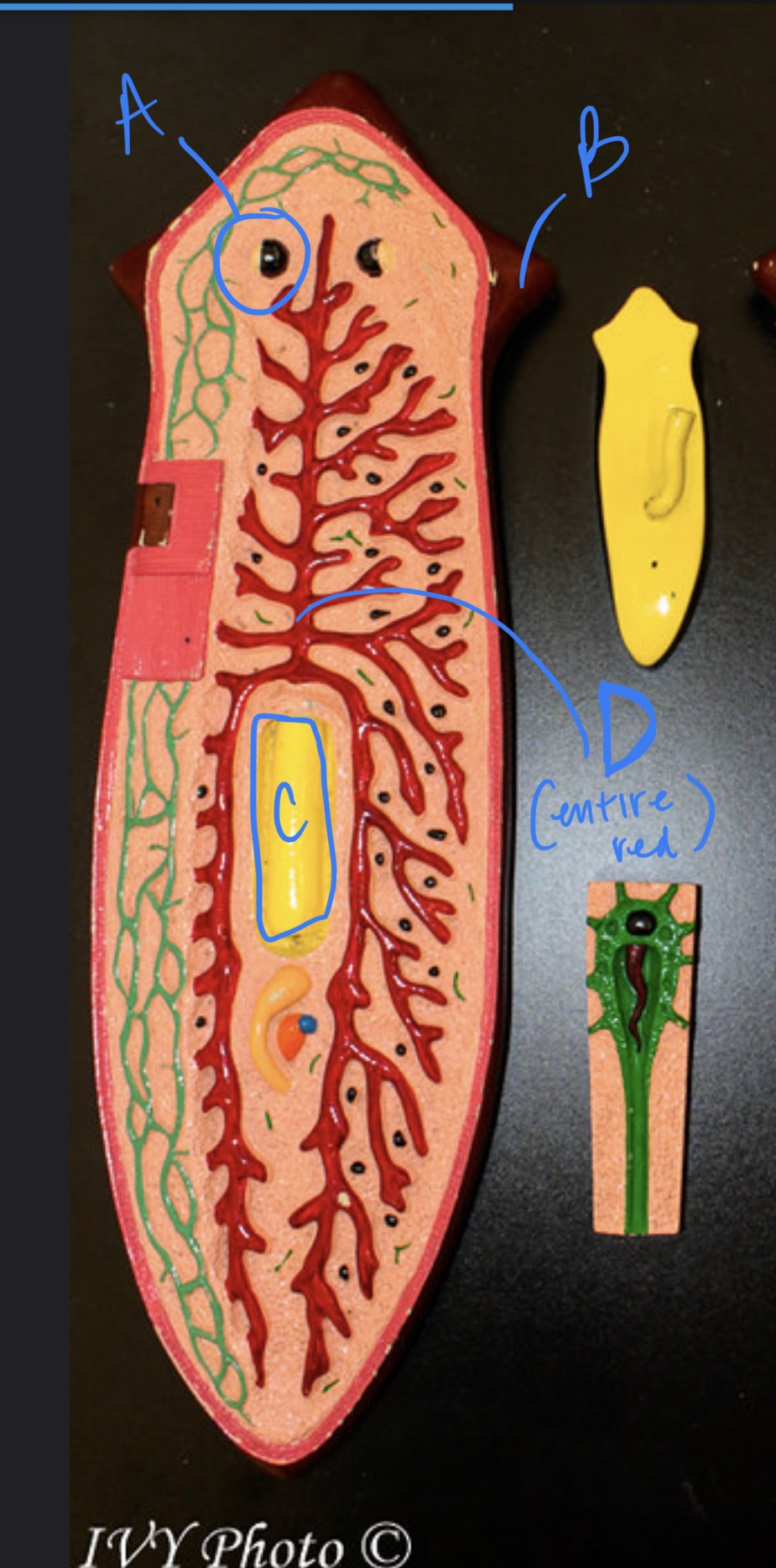
* name?
* label?
* label?
planarian, eyespot, auricle, pharynx, gastrovascular cavity
34
New cards
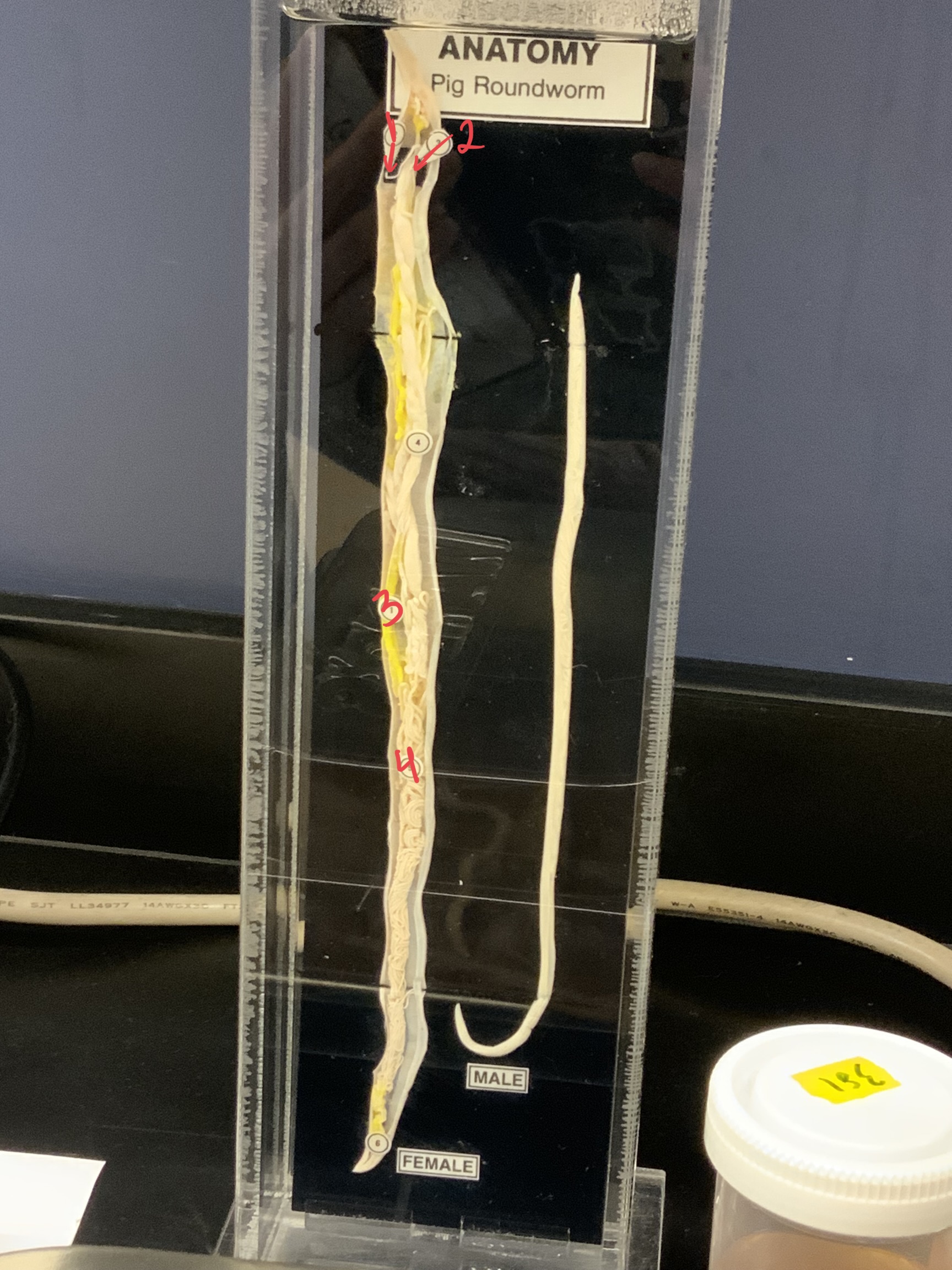
* name?
* label
* label
ascaris, vagina, uterus, intestine, ovary
35
New cards
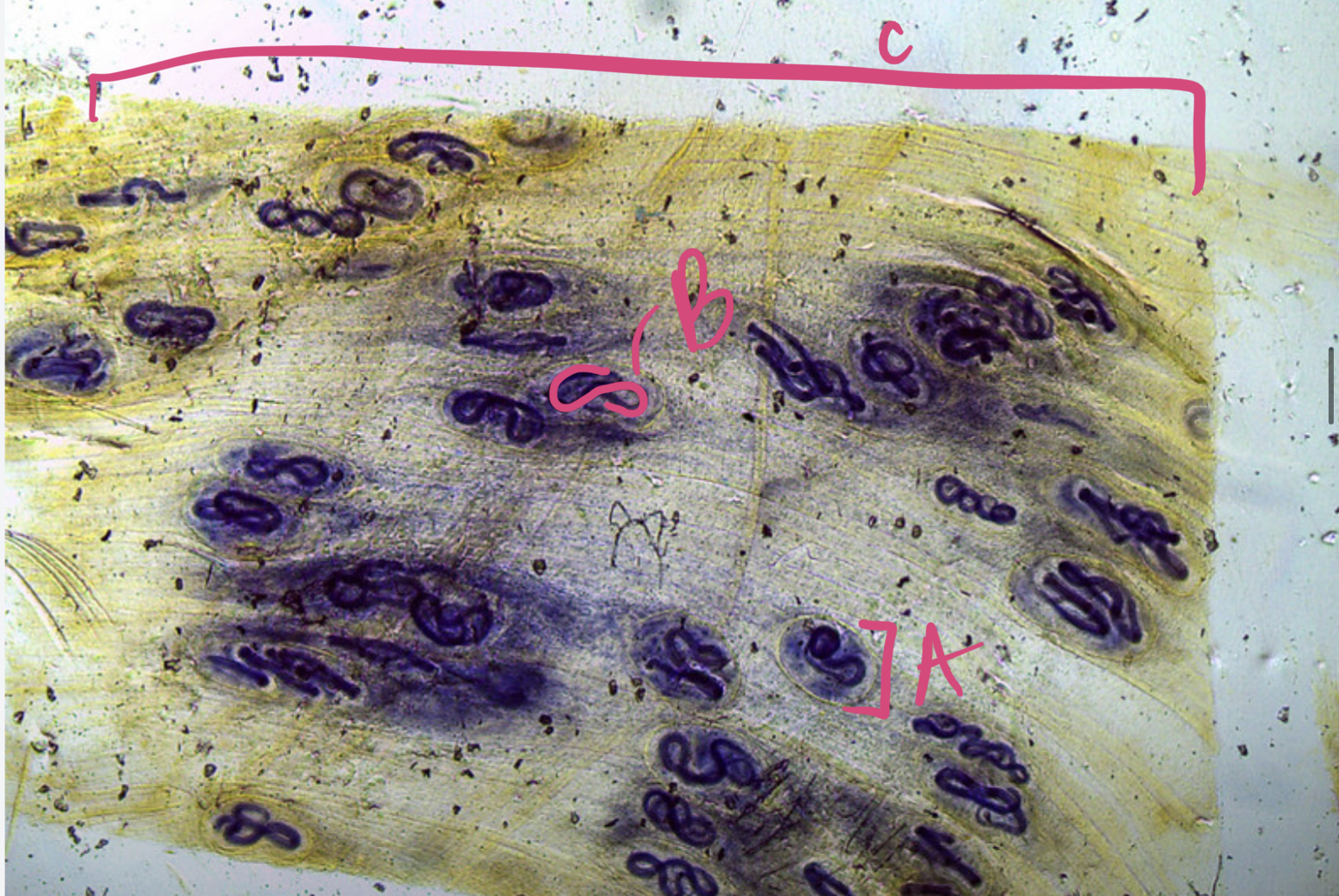
* name?
* label
* how do humans acquire it?
* why do you have to cook meat to 145F?
* label
* how do humans acquire it?
* why do you have to cook meat to 145F?
trichenella, cyst, larva, muscle tissue, ingesting undercooked infected meat, kills trichenella
36
New cards
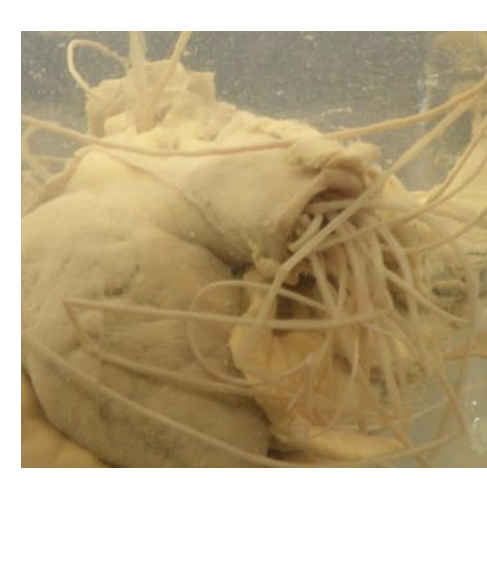
* name?
* what insect vector transmits this to dogs?
* what insect vector transmits this to dogs?
heartworms, mosquitos
37
New cards
4 subphylums of arthropoda?
chelicerata, crustacea, hexapoda, myriapoda
38
New cards
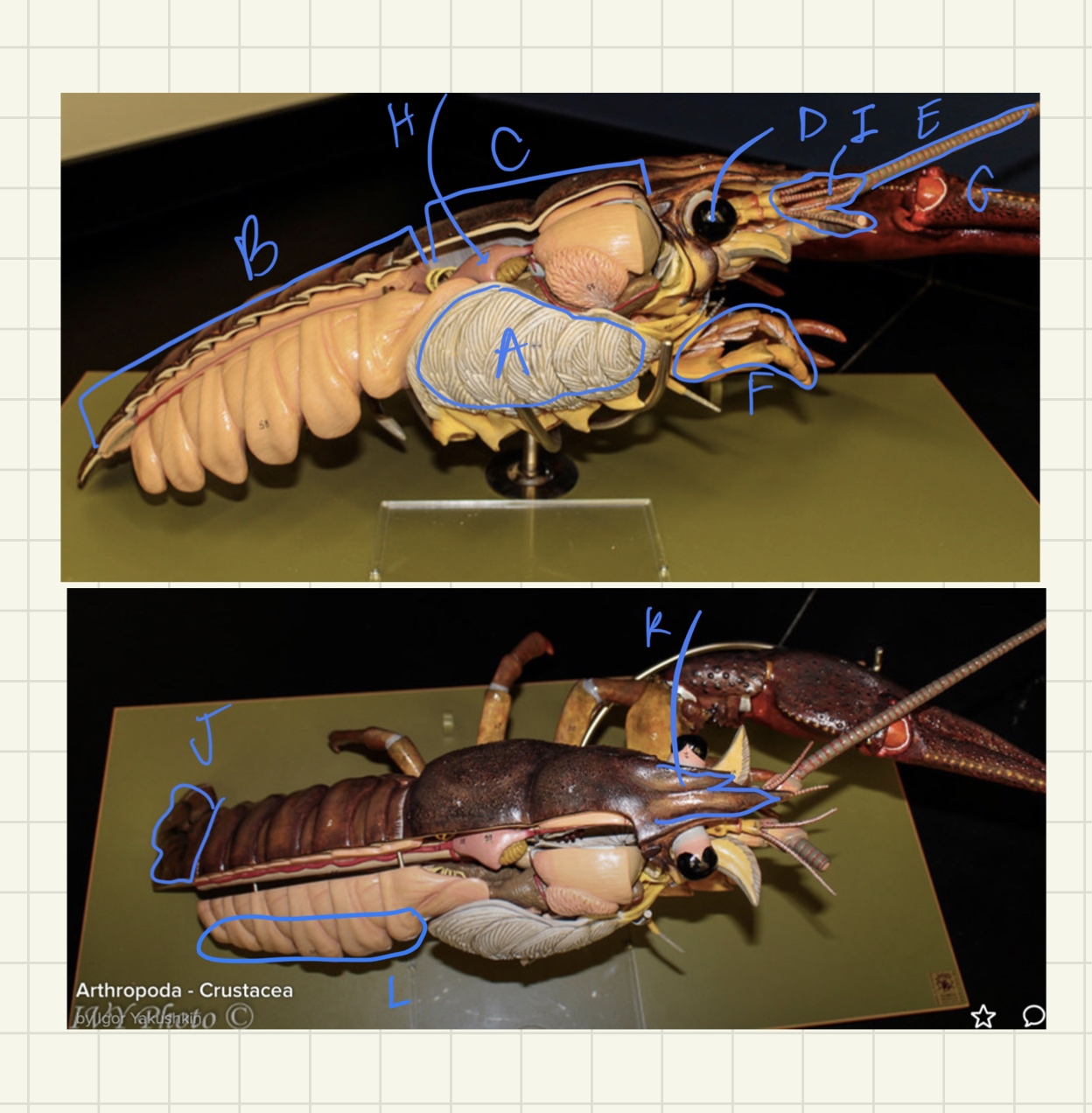
* name?
* label
* label
crayfish, gills, abdomen, cephalothorax, compound eye, antennae, walking legs, pincers, heart, antennules, telson, rostrum, swimmerets
39
New cards
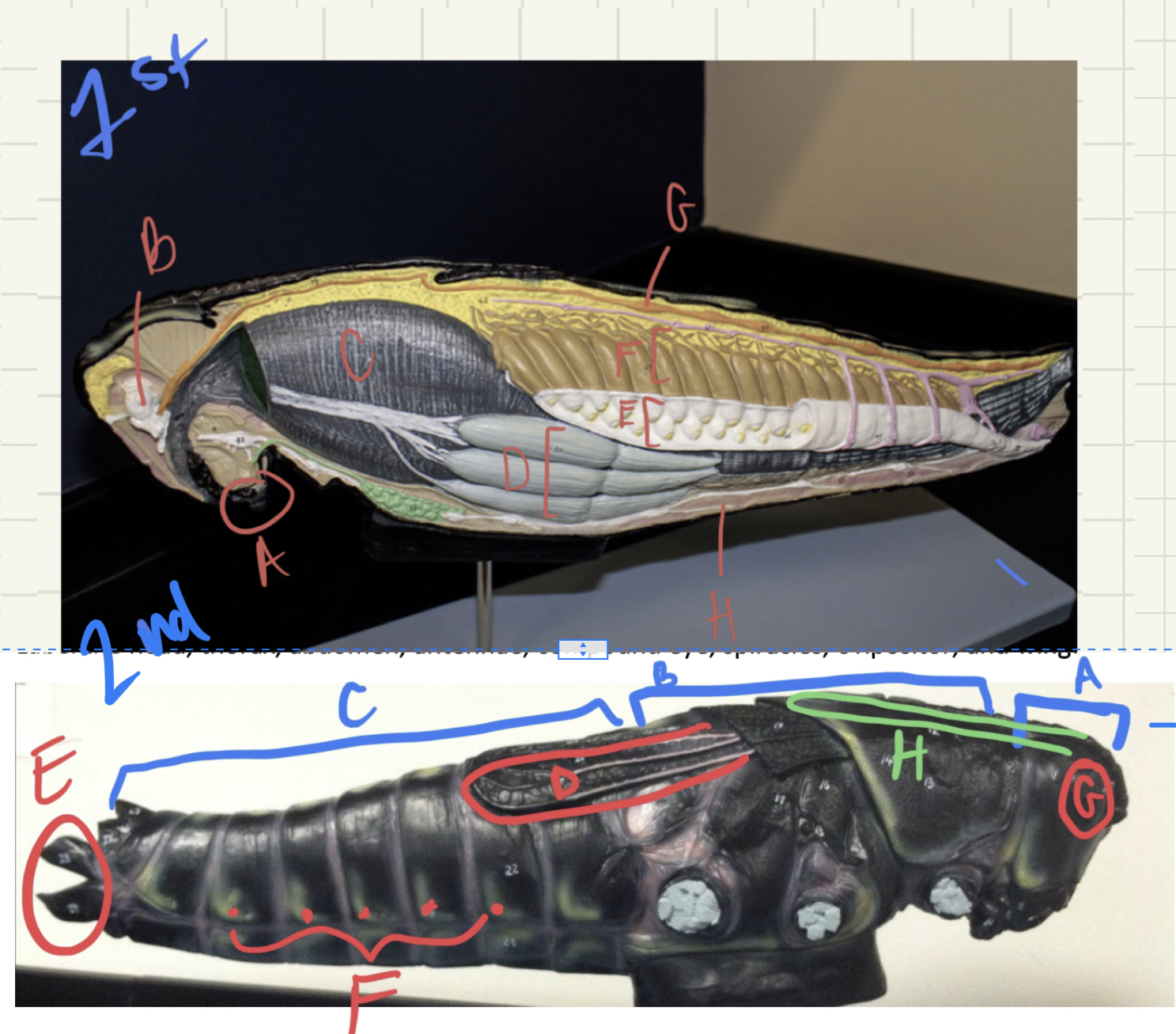
* name?
* label
* label
grasshopper, mouth, brain, thorax, gastric cacae, ovaries, eggs, hearts, ventral nerve cord, head, thorax, abdomen, wings, ovipositor, spiracles, compound eye, antennae
40
New cards
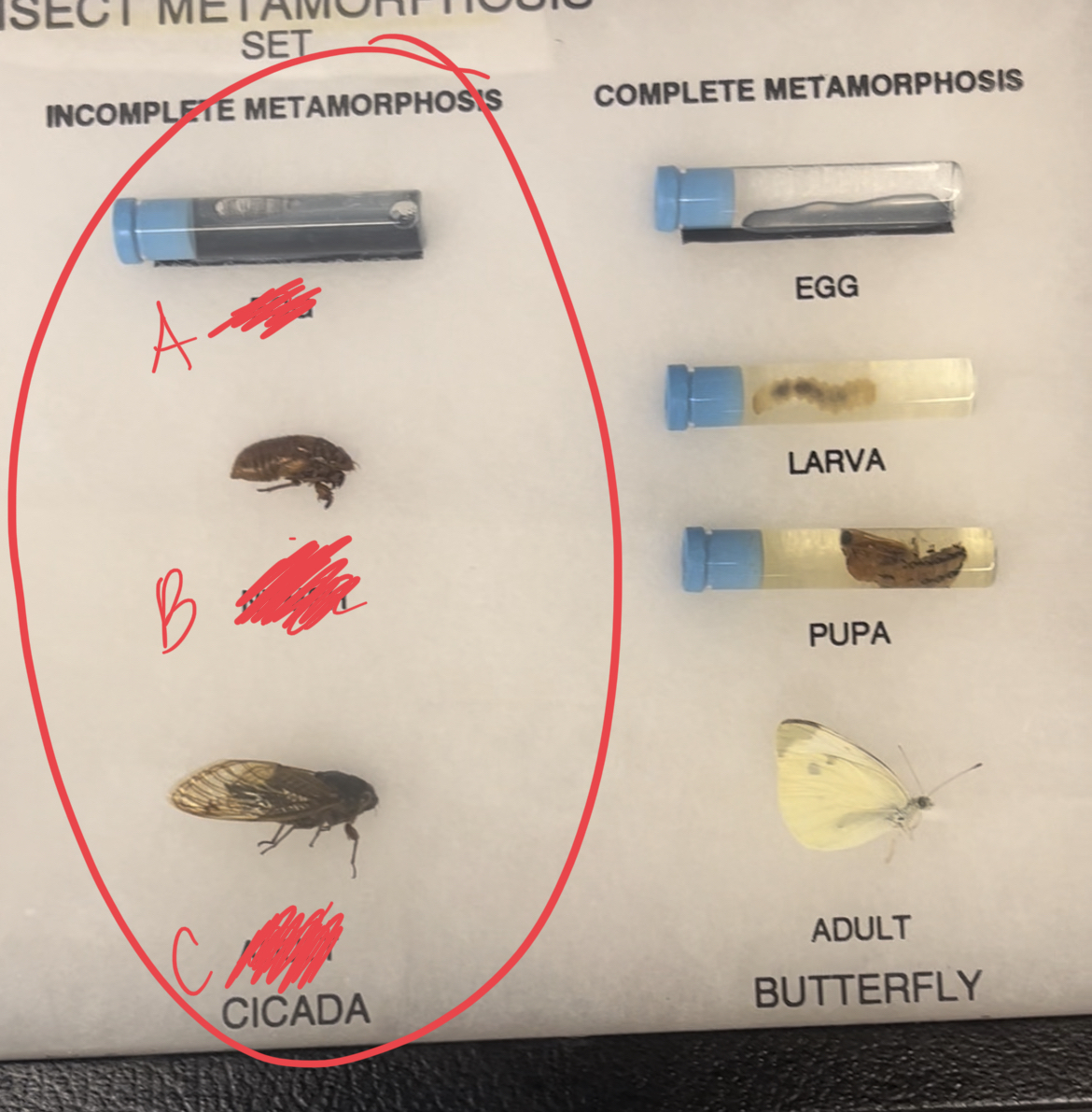
* type of metamorphosis?
* label stages
* label stages
incomplete, egg, nymph, adult
41
New cards
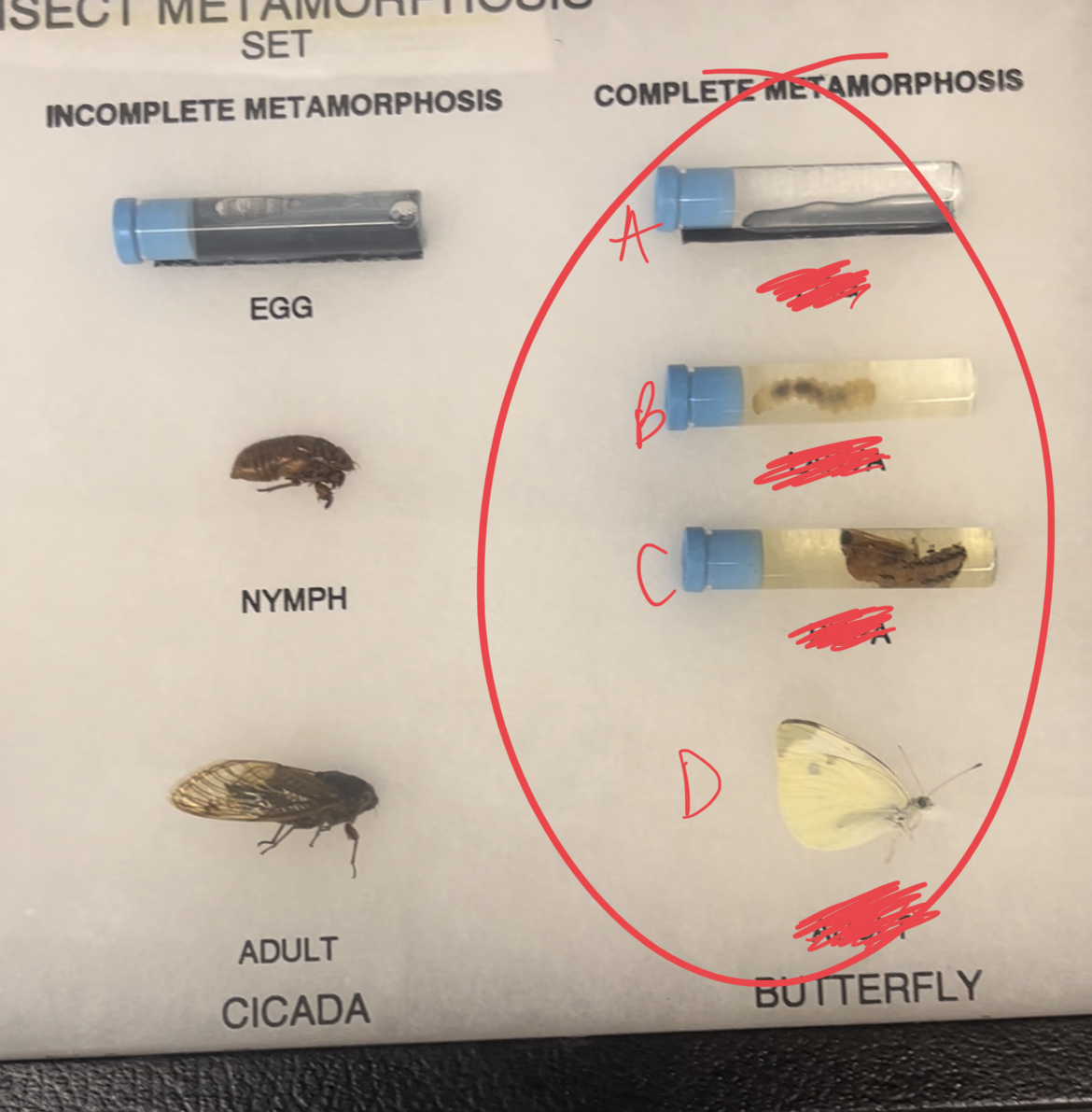
* type of metamorphosis?
* label stages
* label stages
complete, egg, larva, pupa, adult
42
New cards
* how many pairs per segment of centipede?
* how many pairs per segment of millipede?
* how many pairs per segment of millipede?
1, 2
43
New cards
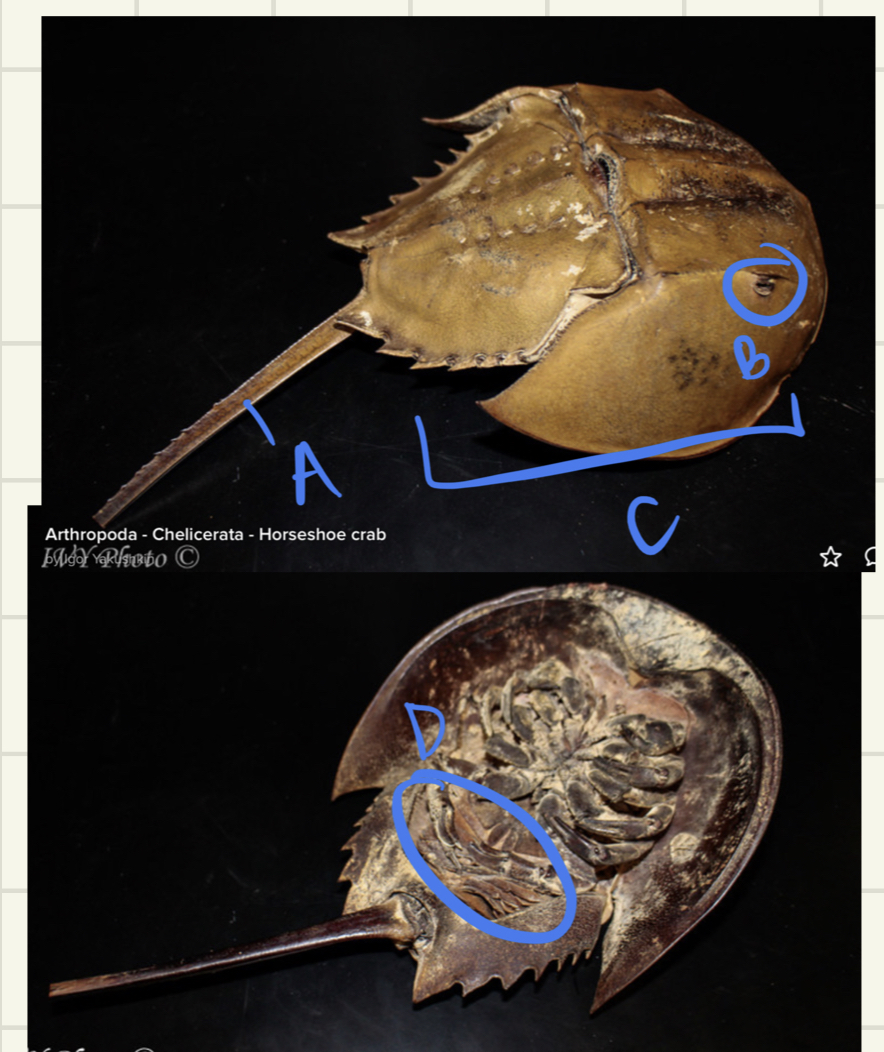
* name
* phylum?
* class?
* label
* phylum?
* class?
* label
horseshoe crab, arthropoda, chelicerata, telson, compound eye, cephalothorax, book gills
44
New cards
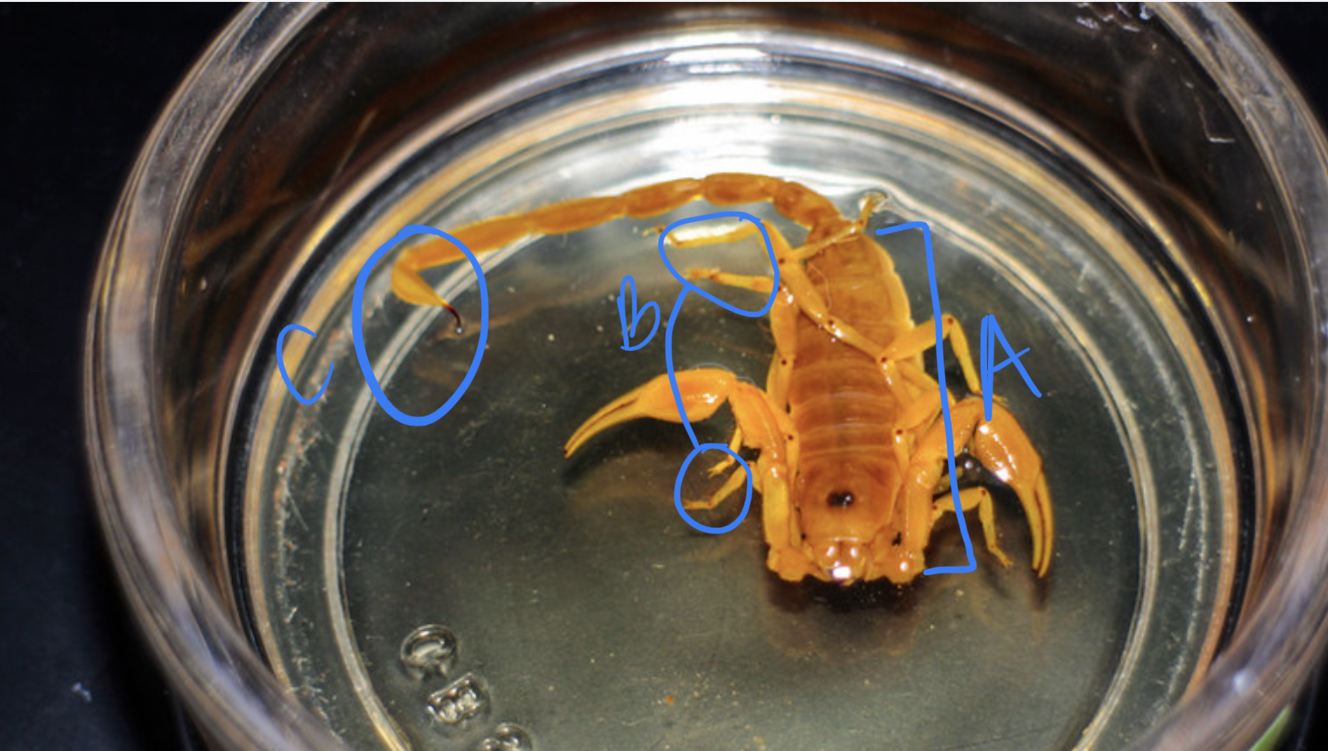
* name?
* label
* label
scorpion, cephalothorax, walking legs, stinger
45
New cards
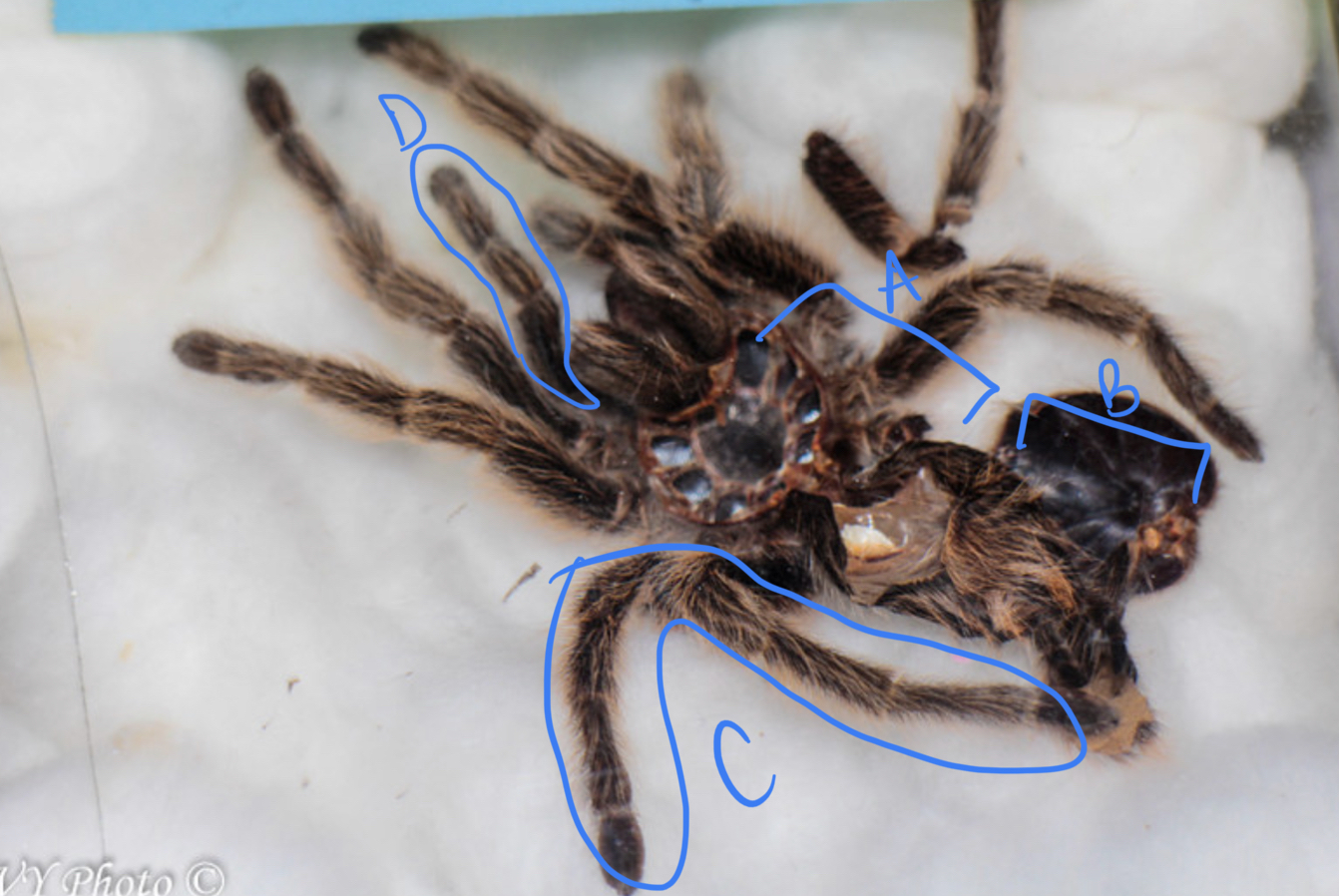
* name?
* label
* label
tarantula, cephalothorax, abdomen, legs, pedipalps
46
New cards
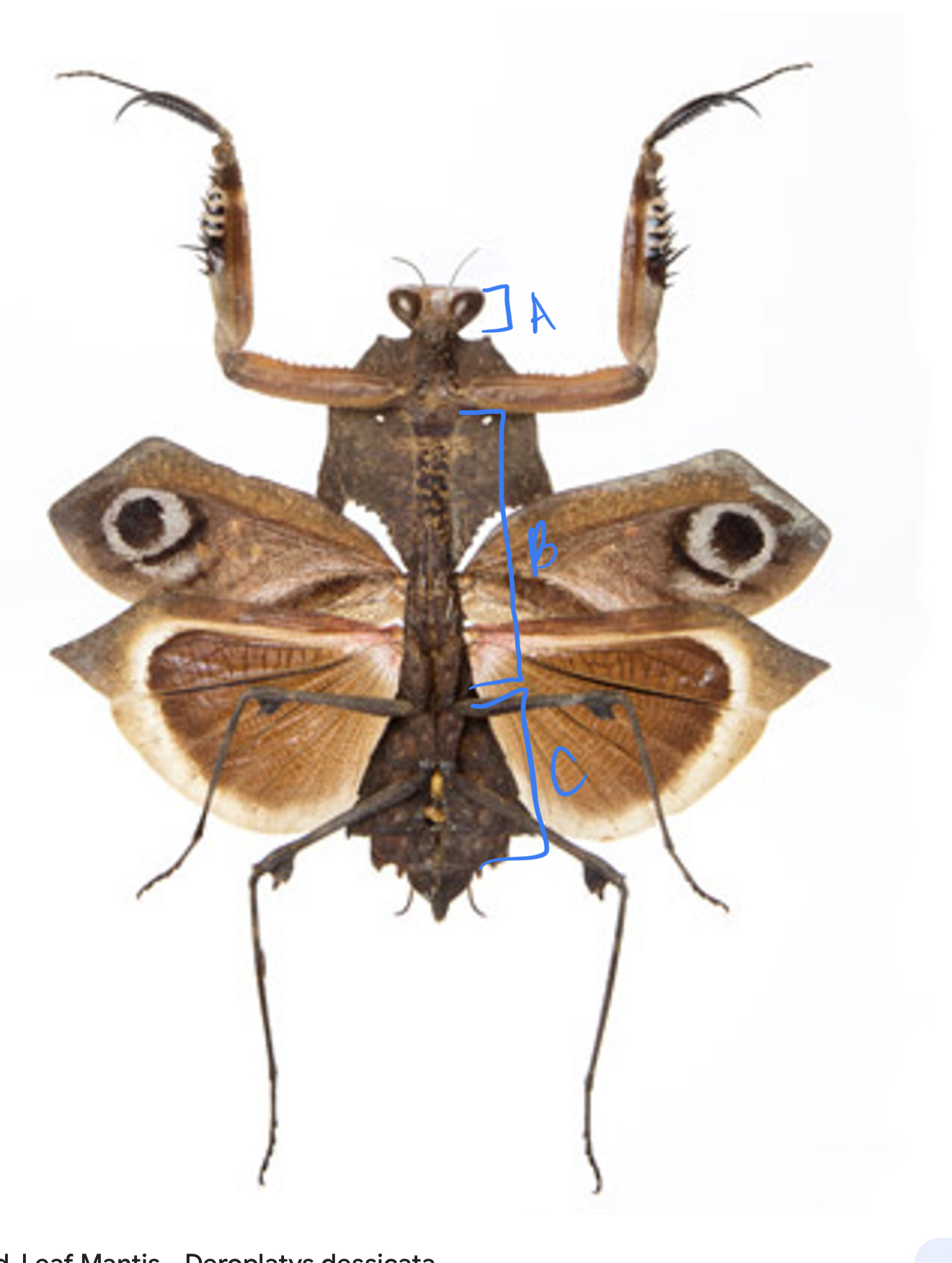
* name?
* label
* label
dead leaf mantid, head, thorax, abdomen
47
New cards
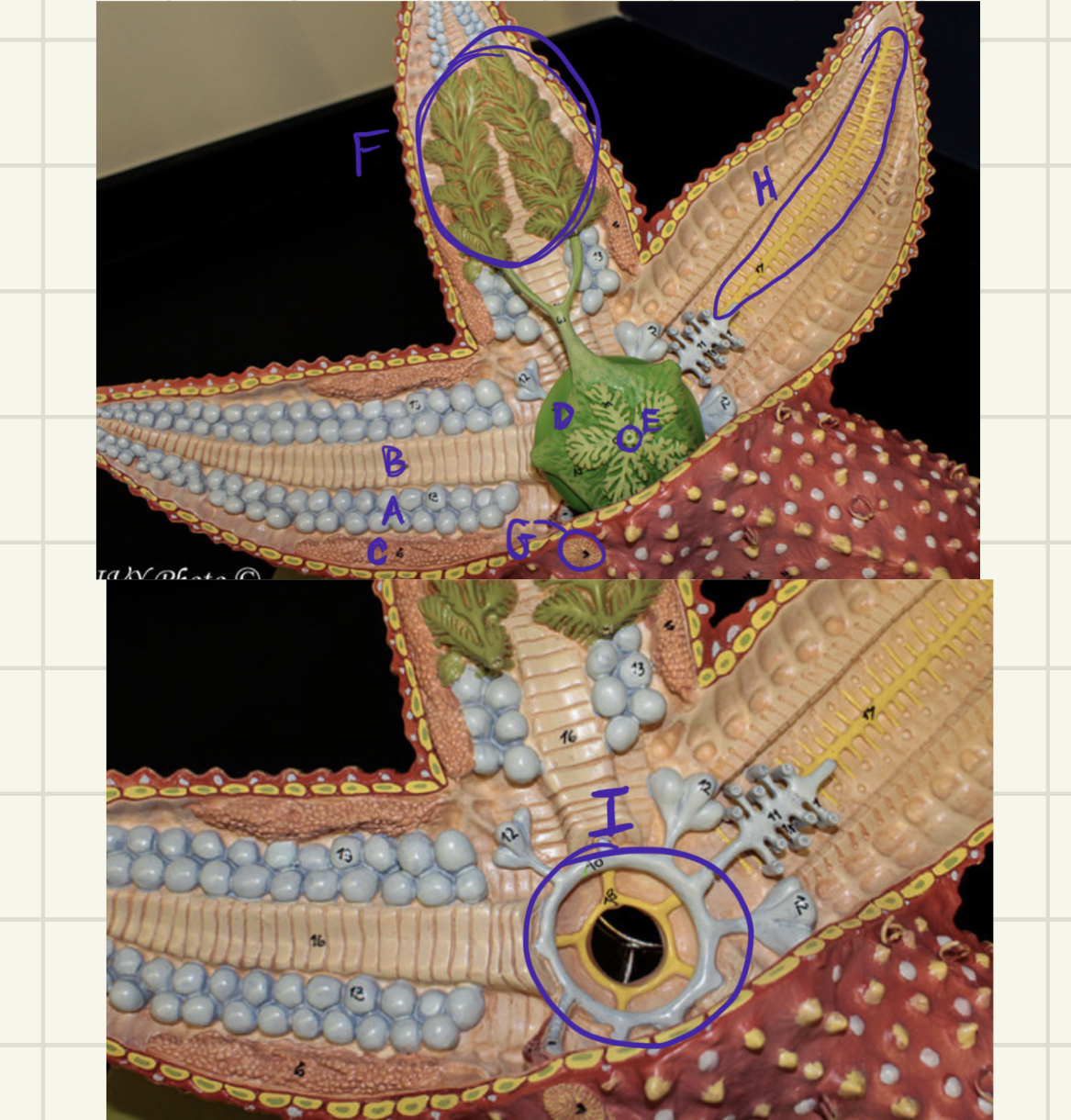
label
\
ampulla, ambulacral ridge, gonads, stomach, anus, digestive glands, madreporite, radial canal, ring canal
ampulla, ambulacral ridge, gonads, stomach, anus, digestive glands, madreporite, radial canal, ring canal
48
New cards
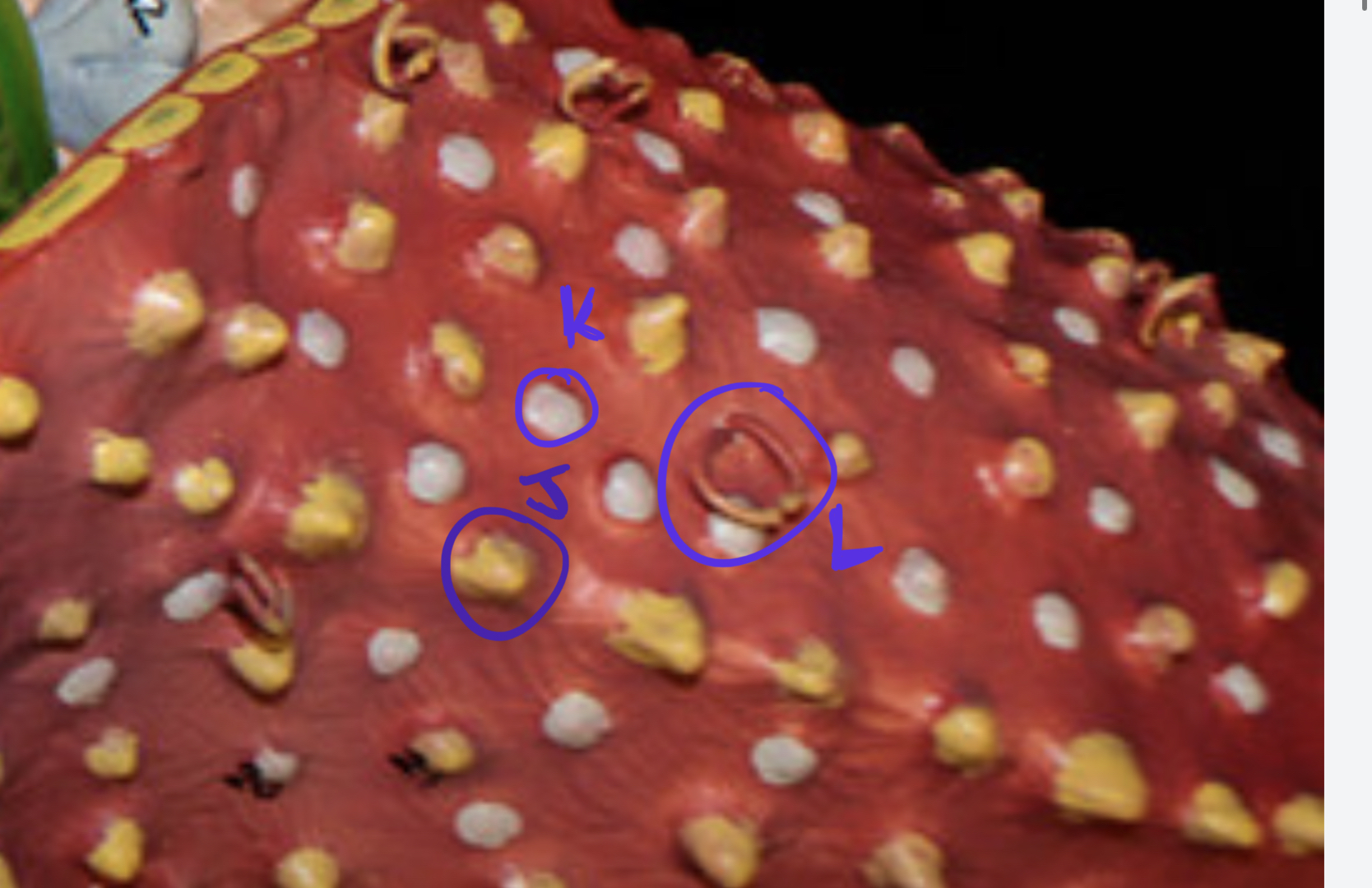
* label
spines, papulae, pedicellariae
49
New cards
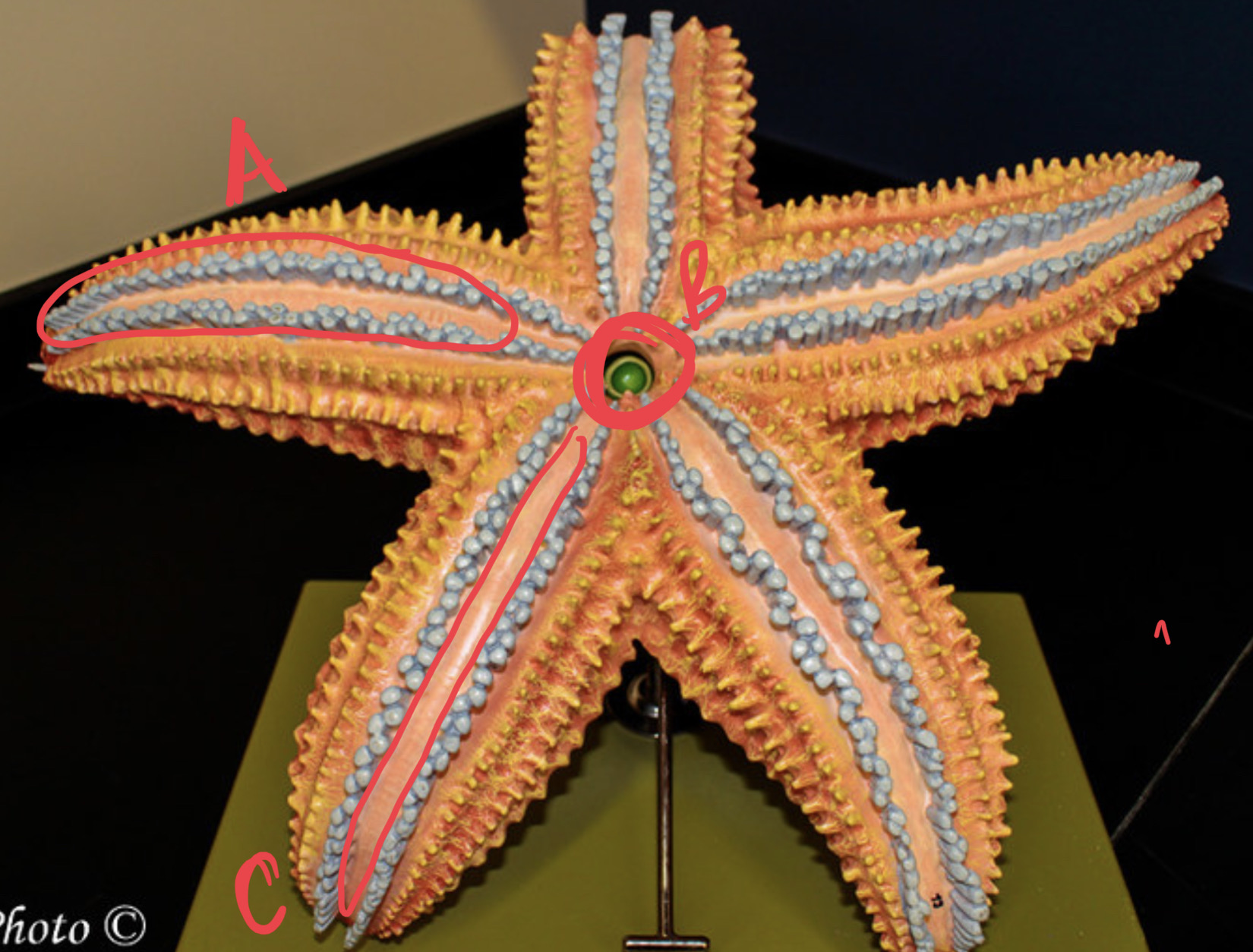
* label
tube feet, mouth, ambulacral groove
50
New cards
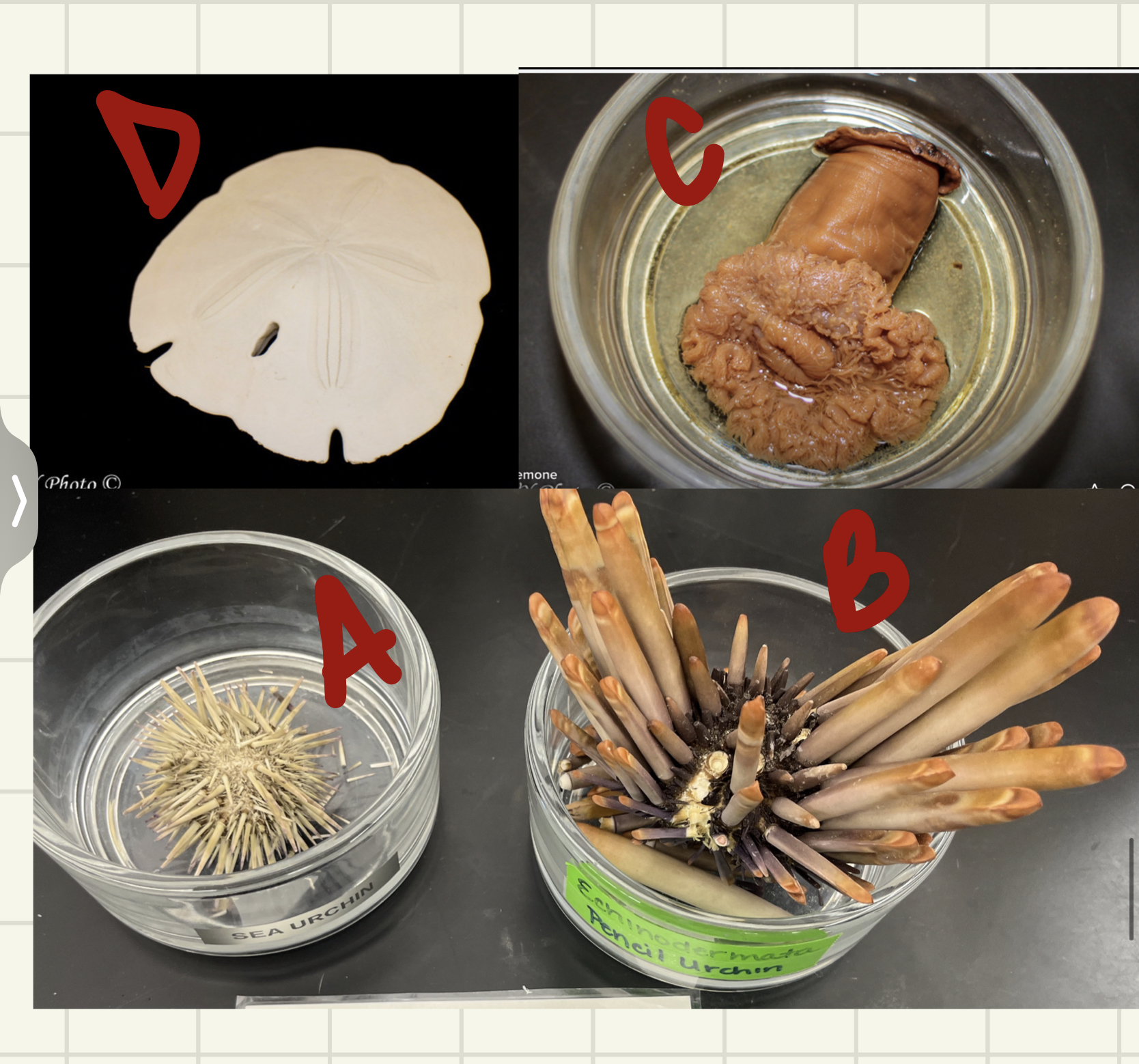
label
sea urchin, pencil sea urchin, sea cucumber, sand dollar
51
New cards
* do deuterostomes have internal or external skeleton?
internal
52
New cards
* distinct chordata traits?
notochord, dorsal hollow nerve cord, pharyngeal slits, postanal
53
New cards
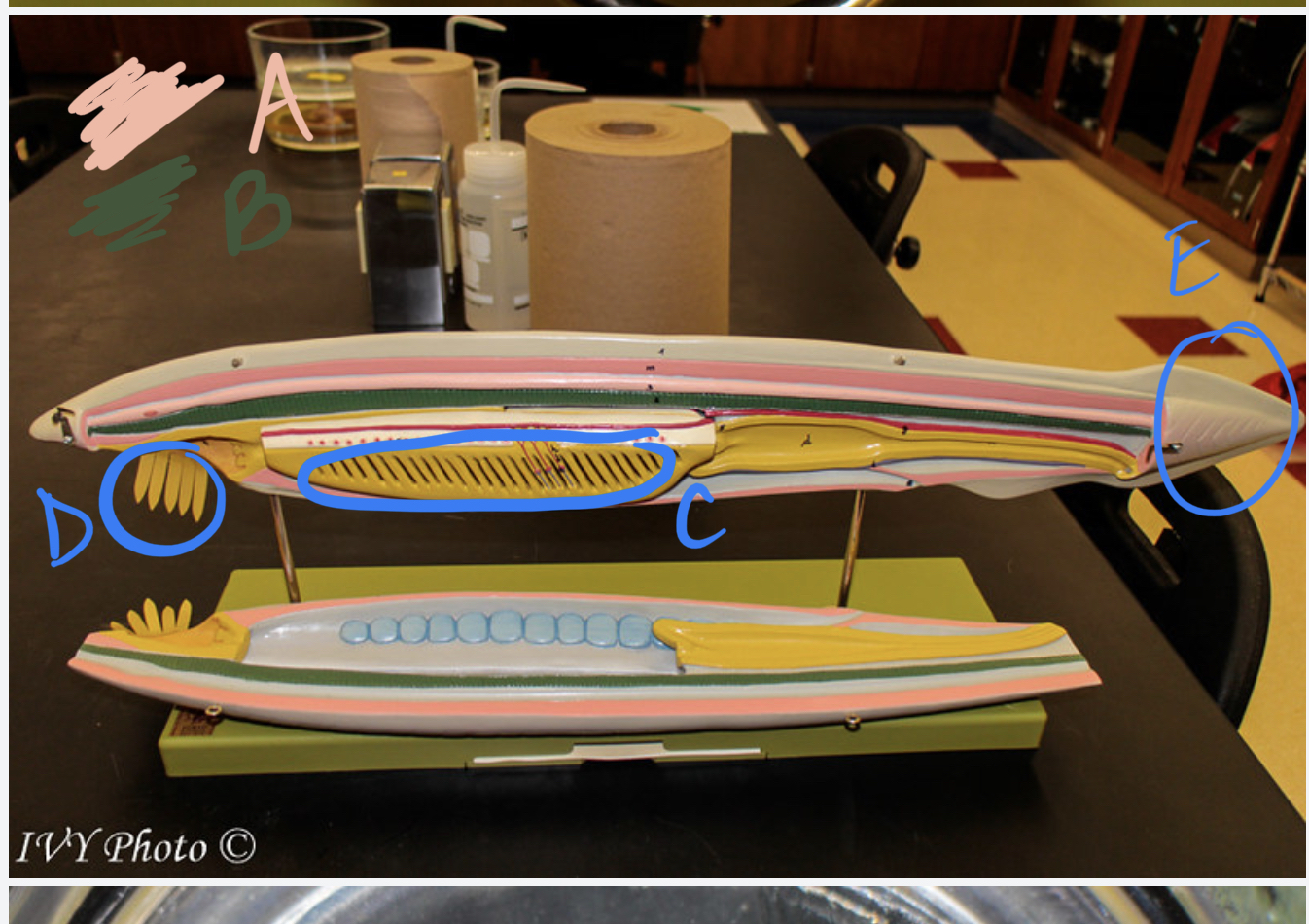
* name
* subphylum?
* label
* subphylum?
* label
lancelet, cephalochordata, dorsal tubular nerve cord, notochord, pharyngeal gill slits, oral tentacles, postanal tail
54
New cards
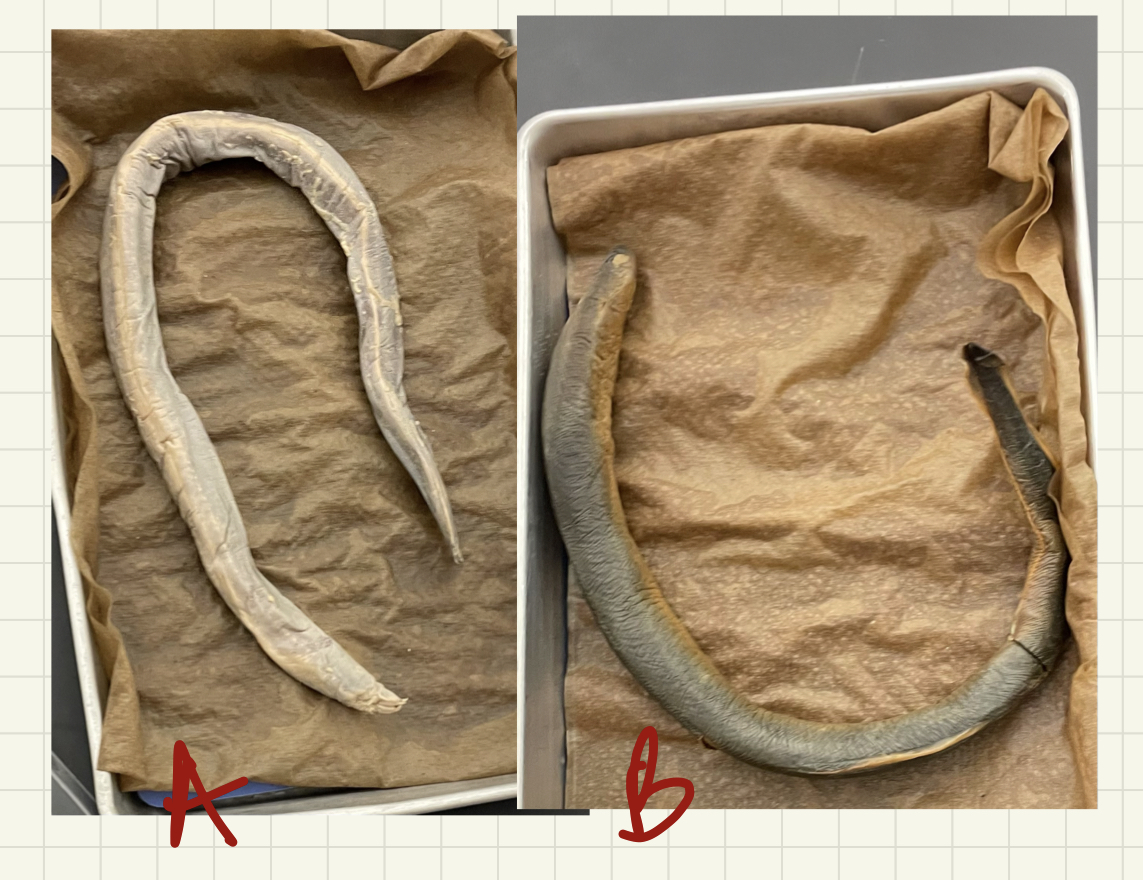
* label animals
* subphylum?
* class
* which animal is the predator?
\
* subphylum?
* class
* which animal is the predator?
\
hagfish, lamprey, vertebrata, cyclostomata, lamprey
55
New cards
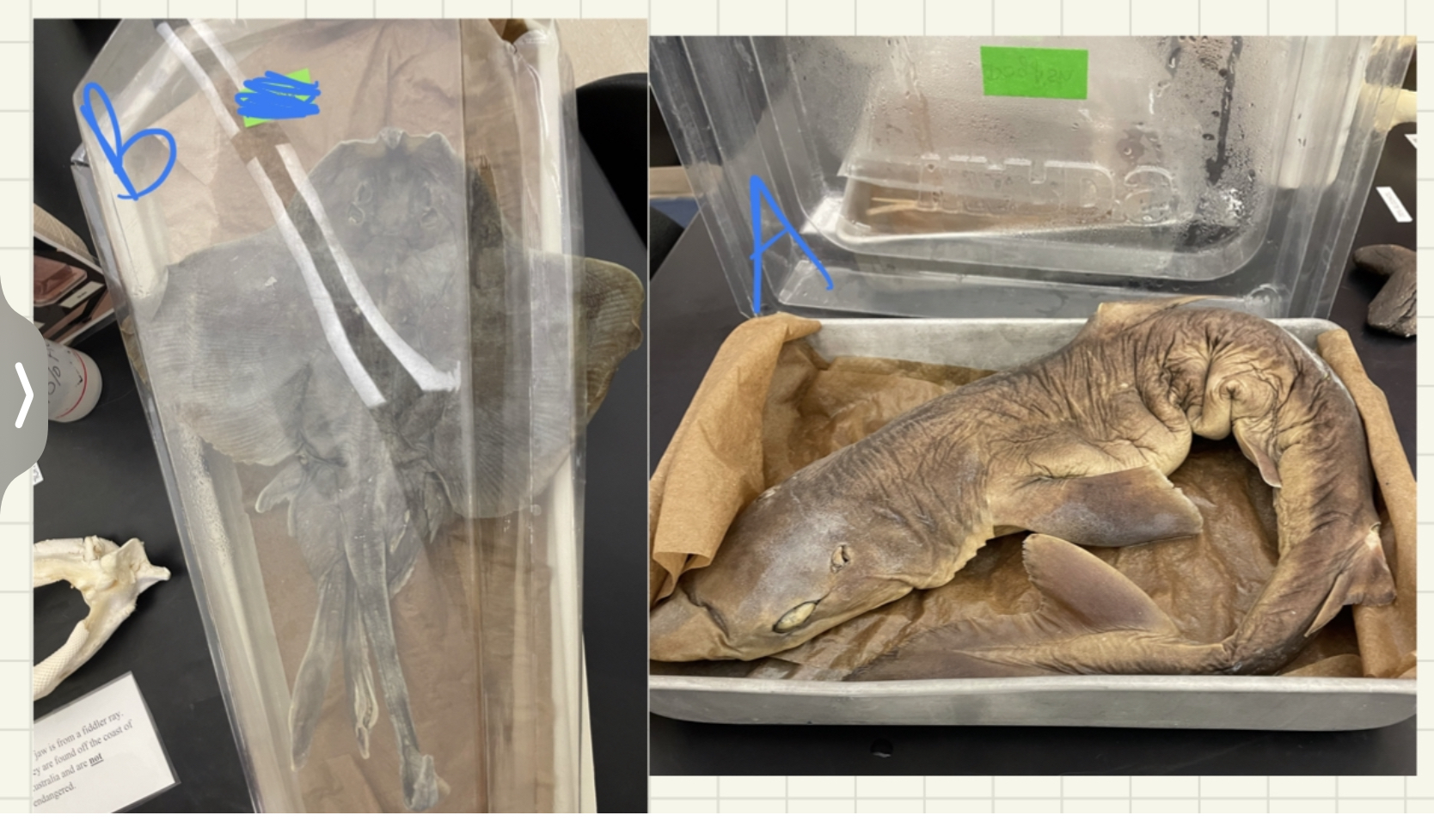
* label animals
* subphylum?
* class
* teeth made of what?
* skeleton made of what?
* what happens if they stop swimming
* subphylum?
* class
* teeth made of what?
* skeleton made of what?
* what happens if they stop swimming
dogfin shark, skate, vertebrata, chondrichthyes, dentacles, cartilage, sinks and stops breathing
56
New cards
* seahorse & pufferfish are examples of what subphylum?
* class
* skeletons made of what?
* what happens if they stop swimming?
* advantages they have over chondrichthyes?
* class
* skeletons made of what?
* what happens if they stop swimming?
* advantages they have over chondrichthyes?
vertebrata, osteichthyes stay still, operculum and swim bladder
57
New cards
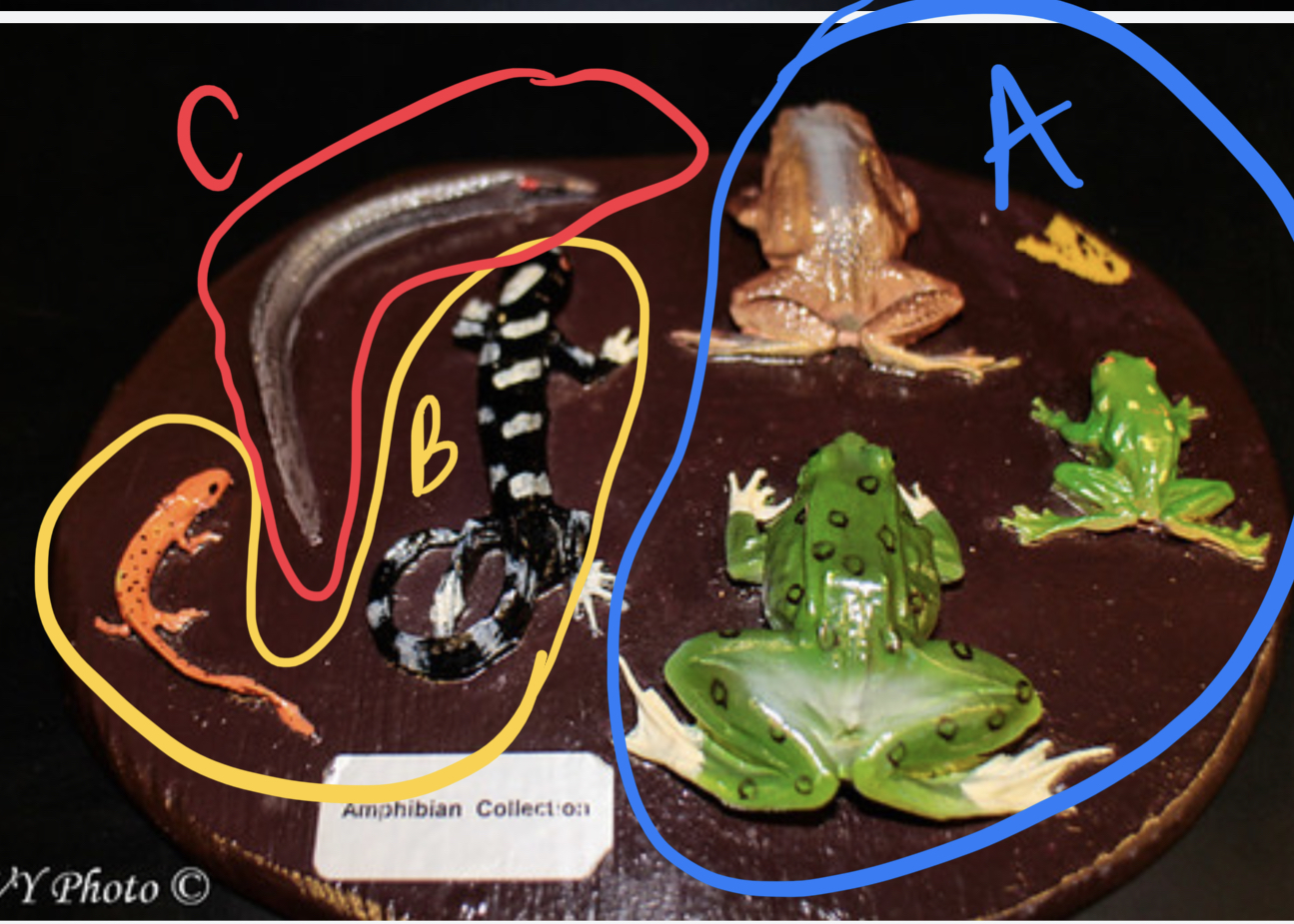
* label orders
* subphylum?
* class
* advantages they have over osteicthyes?
* how do they solve their small lung problems?
* number of chamber hearts?
* subphylum?
* class
* advantages they have over osteicthyes?
* how do they solve their small lung problems?
* number of chamber hearts?
anura, urodela, apoda, vertebrata, amphibia, limbs, cutaneous respiration, 3
58
New cards
* label orders of reptilia class (no picture)
* subphylum?
* what helps them live independently from water?
* number of chamber hearts?
* subphylum?
* what helps them live independently from water?
* number of chamber hearts?
testudines, squamata, crocodilia, vertebrata, tough thick skin, 3
59
New cards
how do birds adapt to flight?
* function of keel bone?
* function of keel bone?
small hollow bones, reduced organs, air sac, attachment site for wing muscles
60
New cards
* name 2 mammals from lab
* subphylum?
* class
* ____: animals that lay eggs, no nipples
* ____: animals that give live birth, well-developed nipples
* subphylum?
* class
* ____: animals that lay eggs, no nipples
* ____: animals that give live birth, well-developed nipples
echidna, duck billed platypus, vertebrata, mammalia, monotremes, placentals
61
New cards
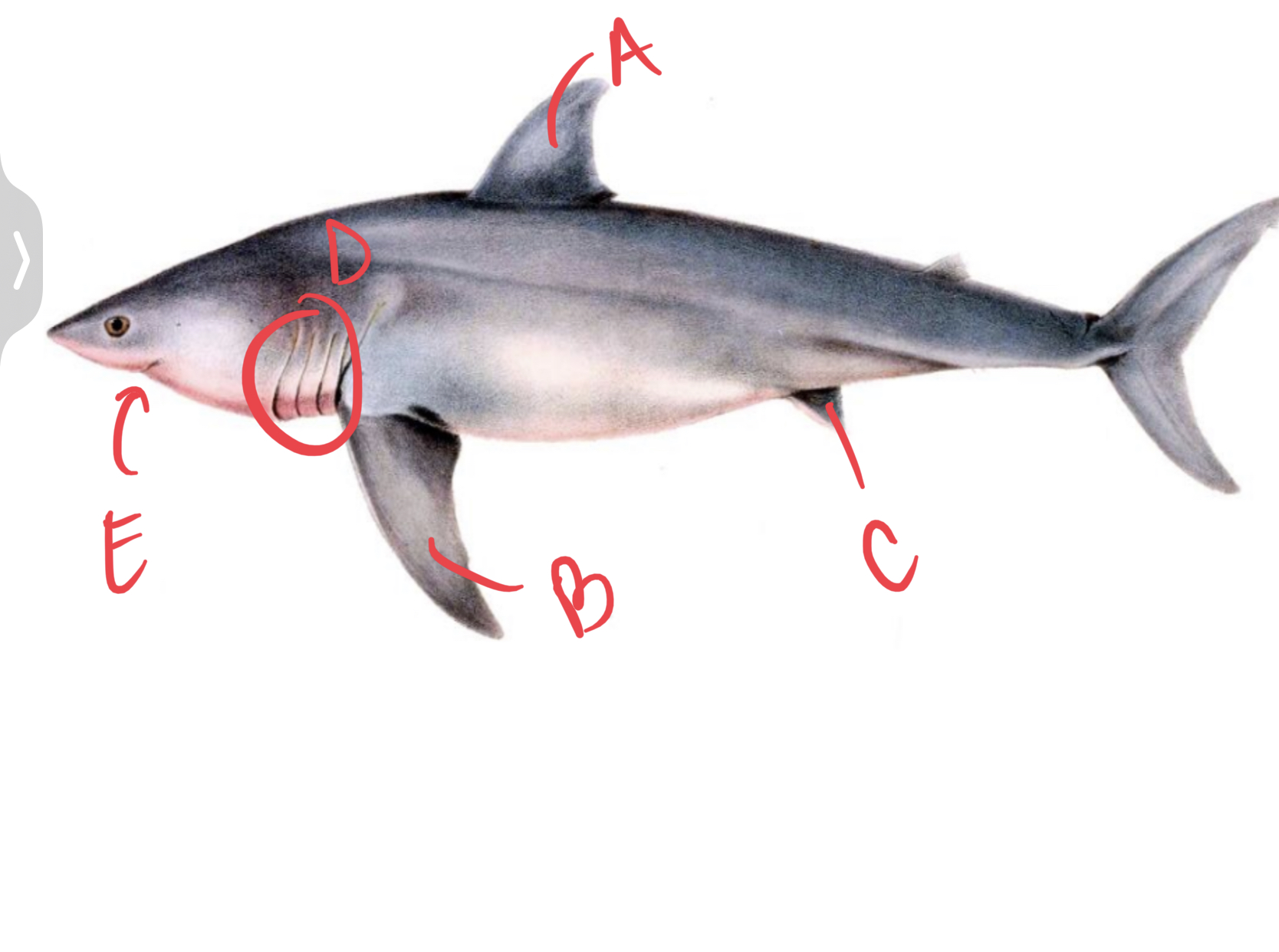
* name?
* label
* label
shark, dorsal fin, pectoral fin, pelvic fin, gills slits, ventral mouth
62
New cards
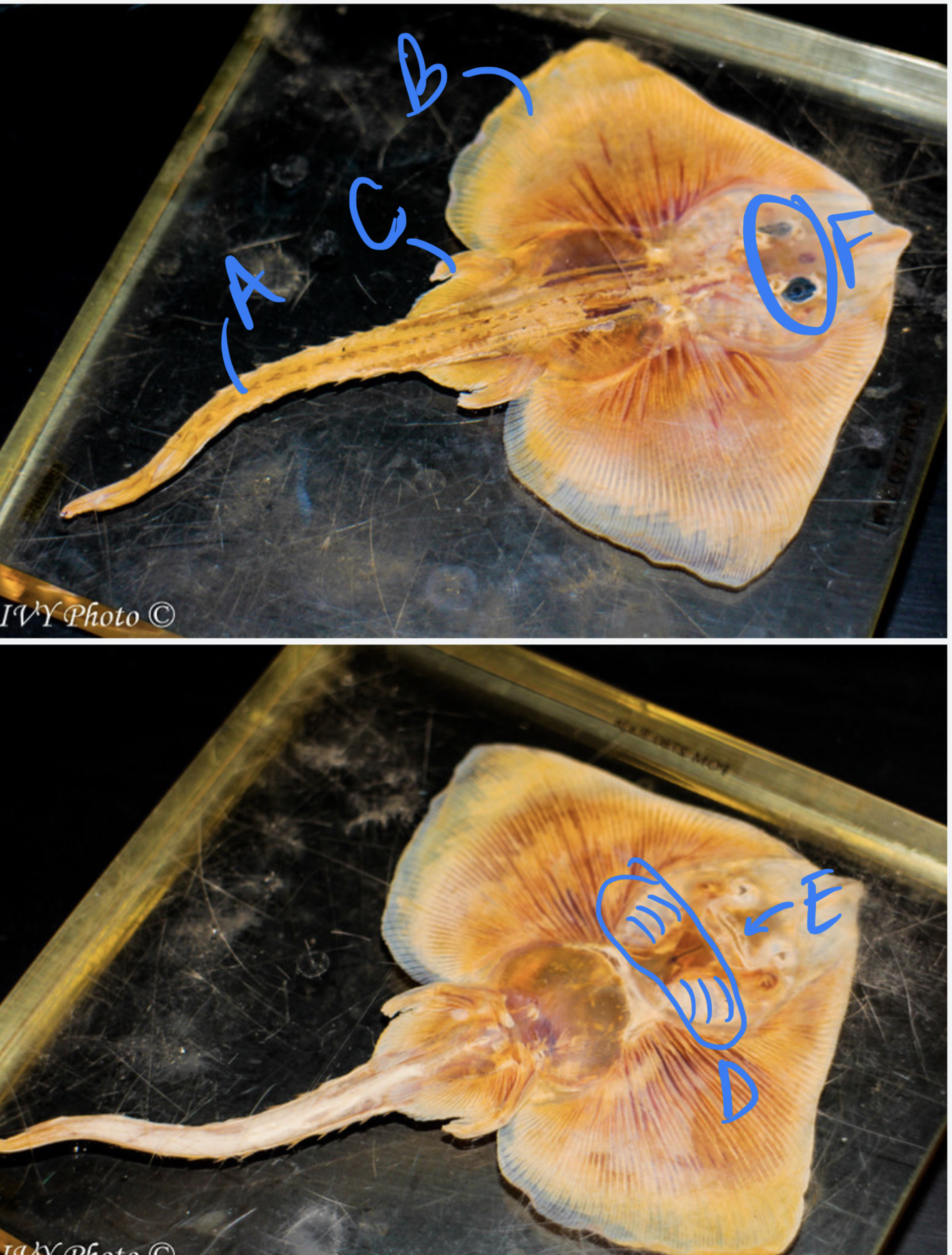
* name?
* label
* label
skate, dorsal fin, pectoral fin, pelvic fin, gills slits, ventral mouth, spiracles
63
New cards
PORIFERA
* germ layers
* body cavity
* symmetry
* digestive system
* germ layers
* body cavity
* symmetry
* digestive system
none, acoeloomate, asymmetrical, none
64
New cards
CNIDARIA
* germ layers
* body cavity
* symmetry
* digestive system
* germ layers
* body cavity
* symmetry
* digestive system
2, acoelomate, radial, gastrovascular cavity
65
New cards
CTENOPHORA
* germ layers
* body cavity
* symmetry
* digestive system
* germ layers
* body cavity
* symmetry
* digestive system
2, acoelomate, radial, complete
66
New cards
PLATYHELMINTHES
* germ layers
* body cavity
* digestive system
* germ layers
* body cavity
* digestive system
3, acoelomate, gastrovascular cavity
67
New cards
NEMATODA
* germ layers
* body cavity
* digestive system
* germ layers
* body cavity
* digestive system
3, pseudocoelomate, complete
68
New cards
BRACHIOPODA
* germ layers
* body cavity
* digestive system
* germ layers
* body cavity
* digestive system
3, coelomate, complete
69
New cards
MOLLUSCA
* germ layers
* body cavity
* digestive system
* germ layers
* body cavity
* digestive system
3, coelomate, complete
70
New cards
ANNELIDA
* germ layers
* body cavity
* digestive system
* germ layers
* body cavity
* digestive system
3, coelomate, complete
71
New cards
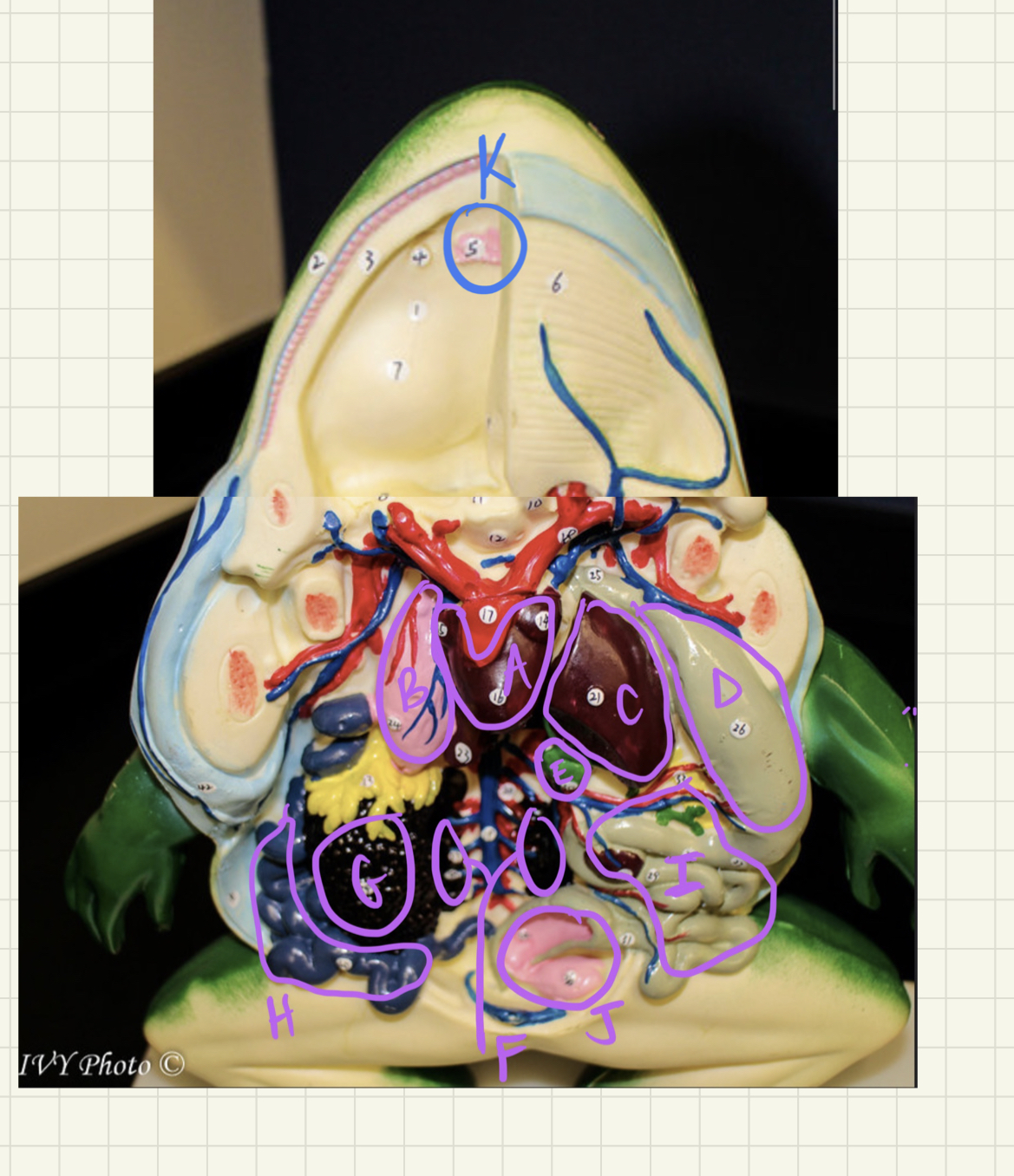
label
three chamber heart, lungs, liver, stomach, galbladder, kidneys, eggs, oviducts, intestines, urinary bladder, vormine teeth
72
New cards
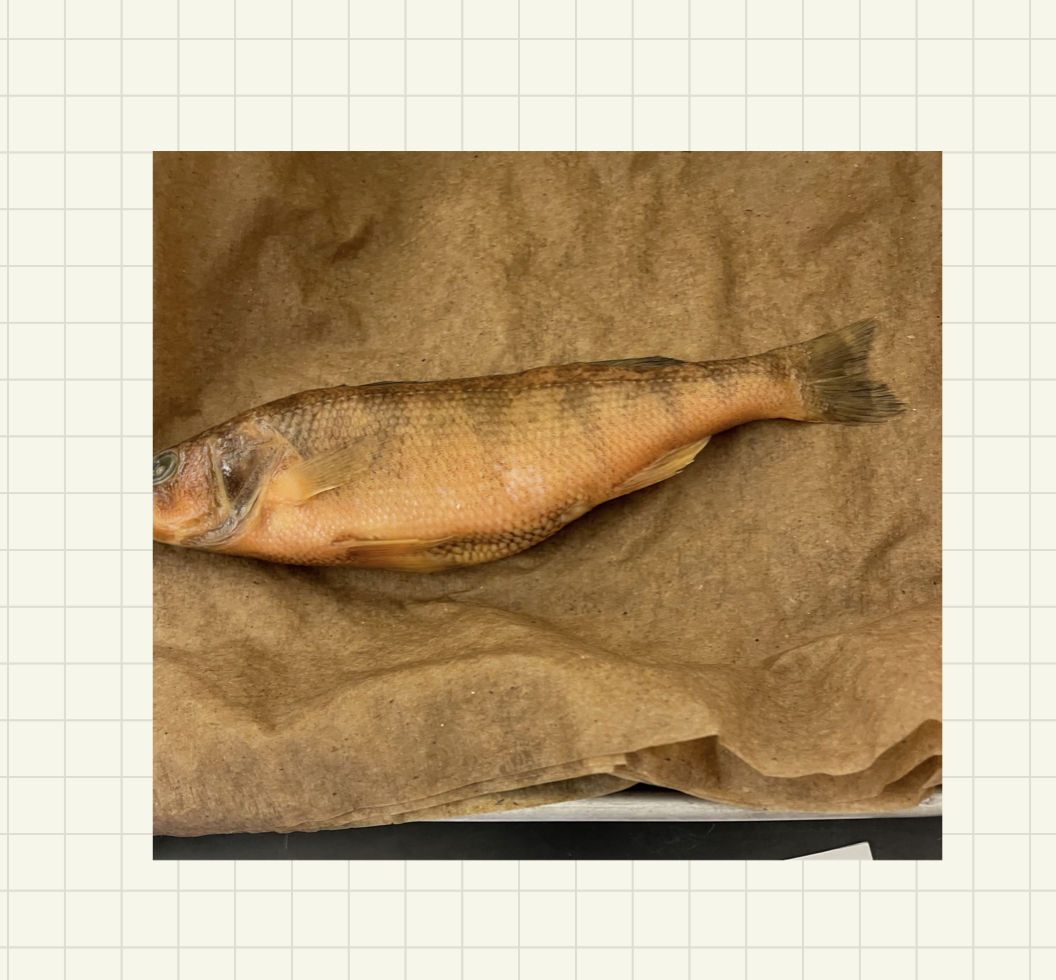
name?
* chondricthyes or osteiocthyes?
* chondricthyes or osteiocthyes?
perch, osteiocthyes
73
New cards
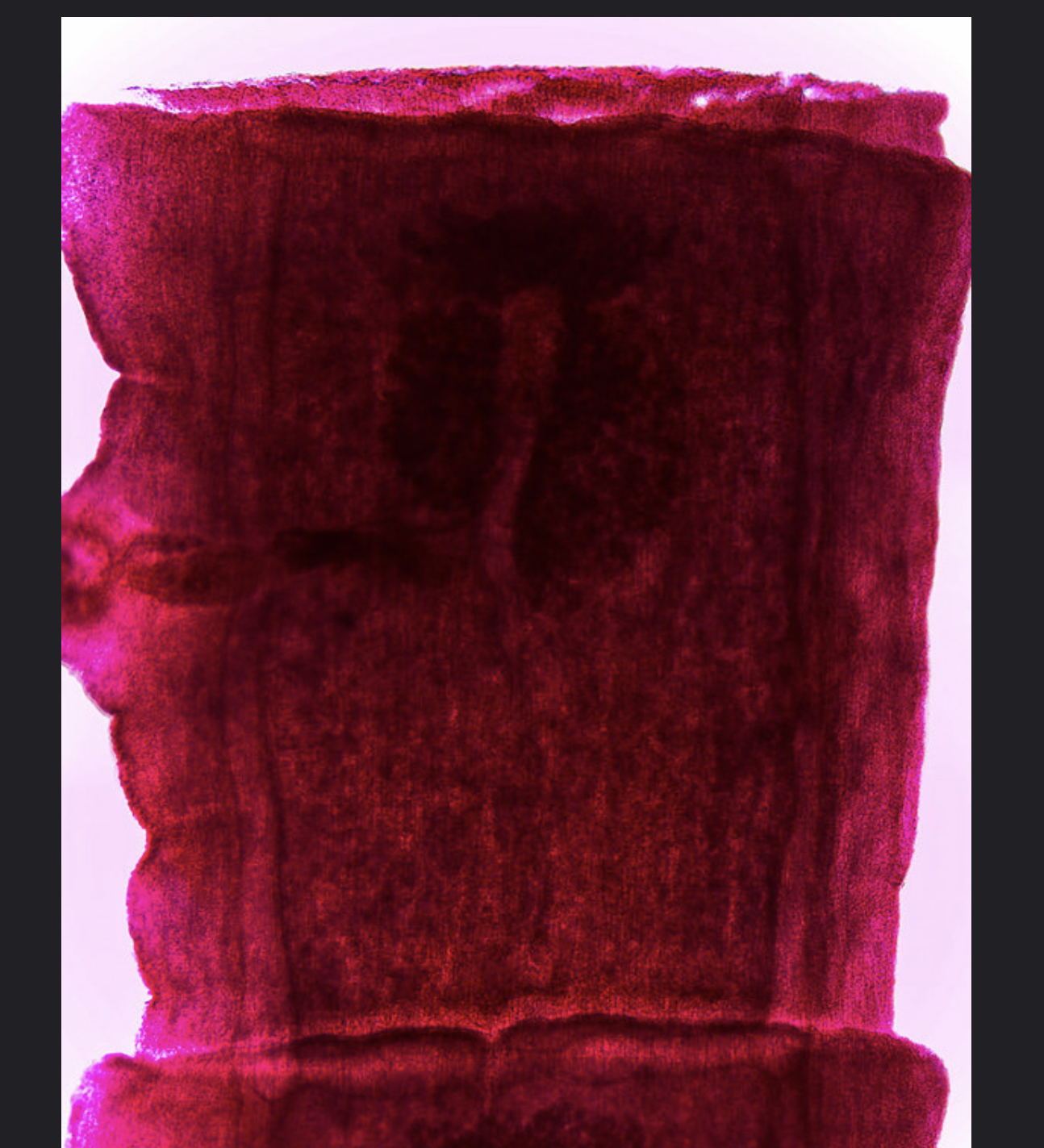
label
mature proglottid
74
New cards
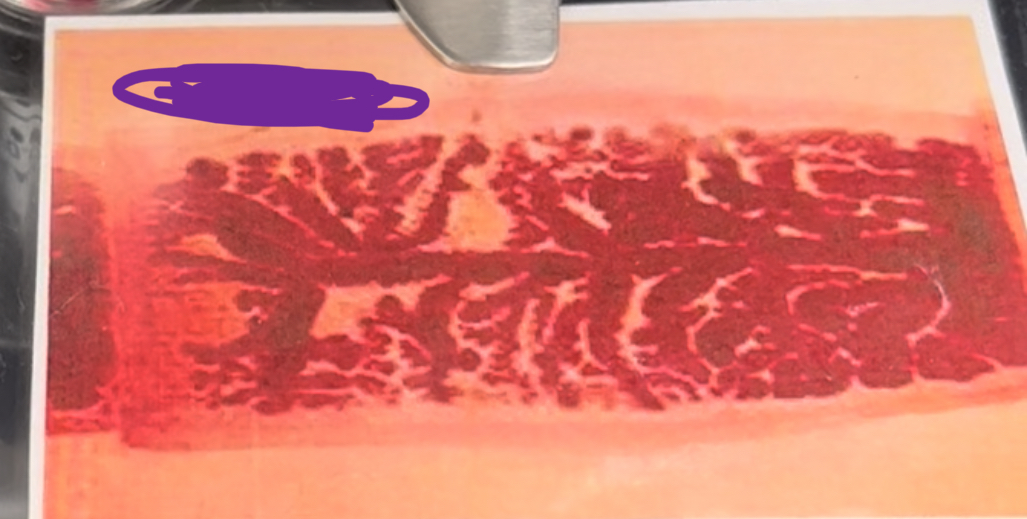
label
gravid proglottid
75
New cards
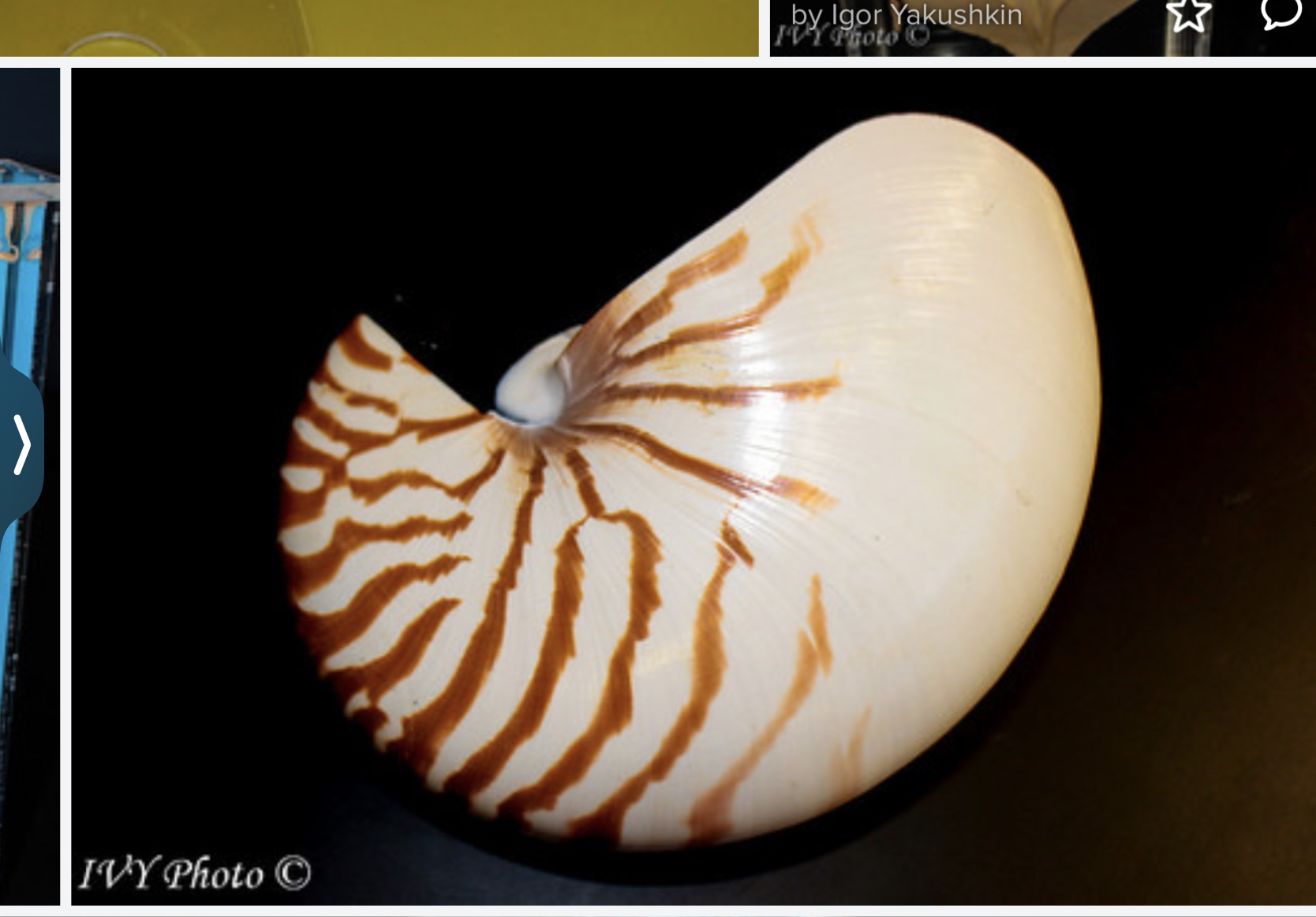
* name?
* class?
* class?
nautilus, cephalopoda
76
New cards
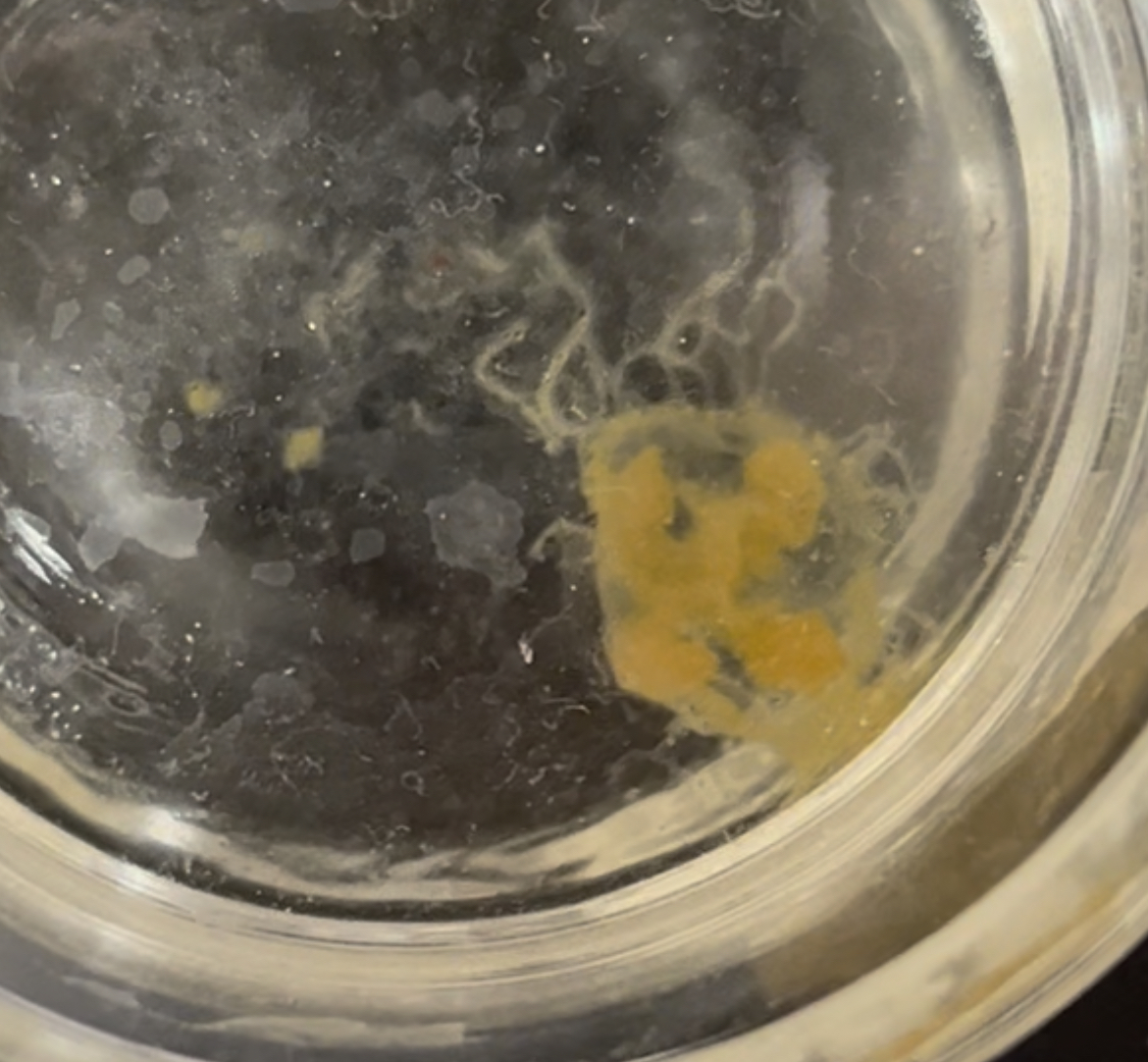
* name?
* phylum?
* phylum?
sea walnut, ctenophora
77
New cards
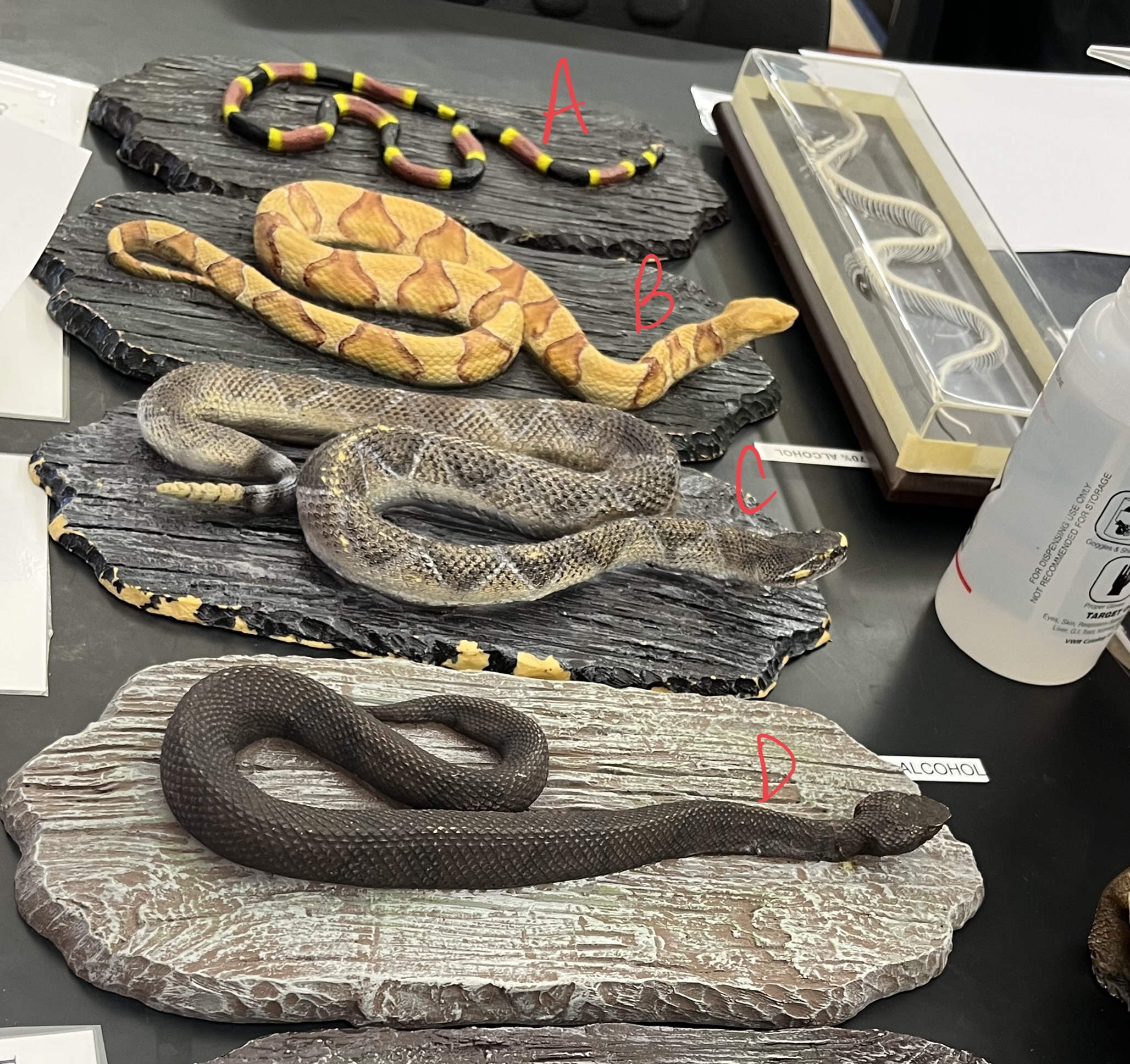
* names?
* found where?
* found where?
coral, copperhead, rattlensnake, water mocassin, houston area
78
New cards
* name? IDK YET MAN
* label
* label
sheep liver fluke, uterus, ovary, testes, gastrovascular cavity
79
New cards
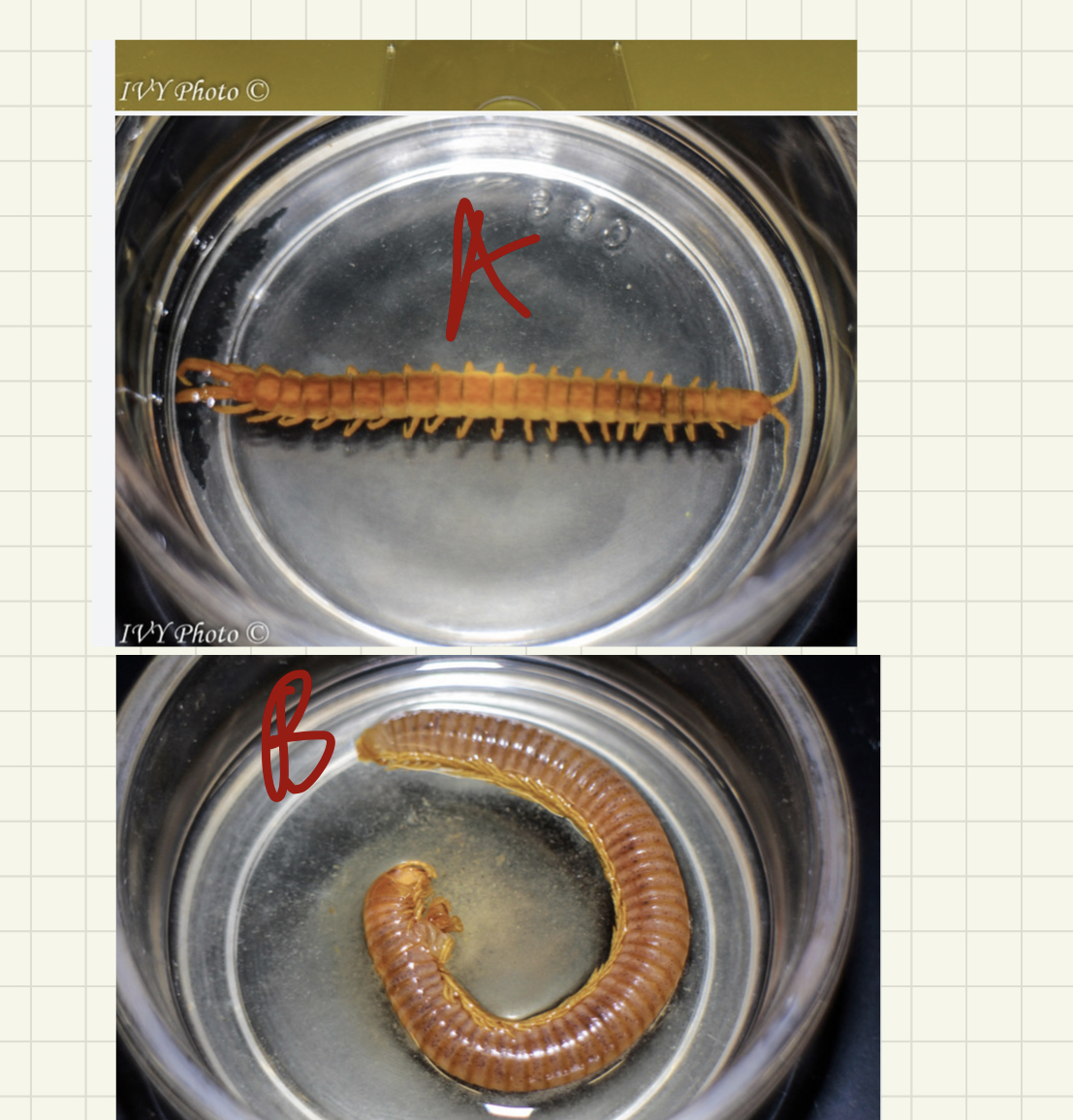
* phylum?
* subphylum?
* label
\
* subphylum?
* label
\
arthropoda, myriapoda, centipede, millipede
80
New cards
define bilateral symmetry
cutting planes through the center produces left and right halves
81
New cards
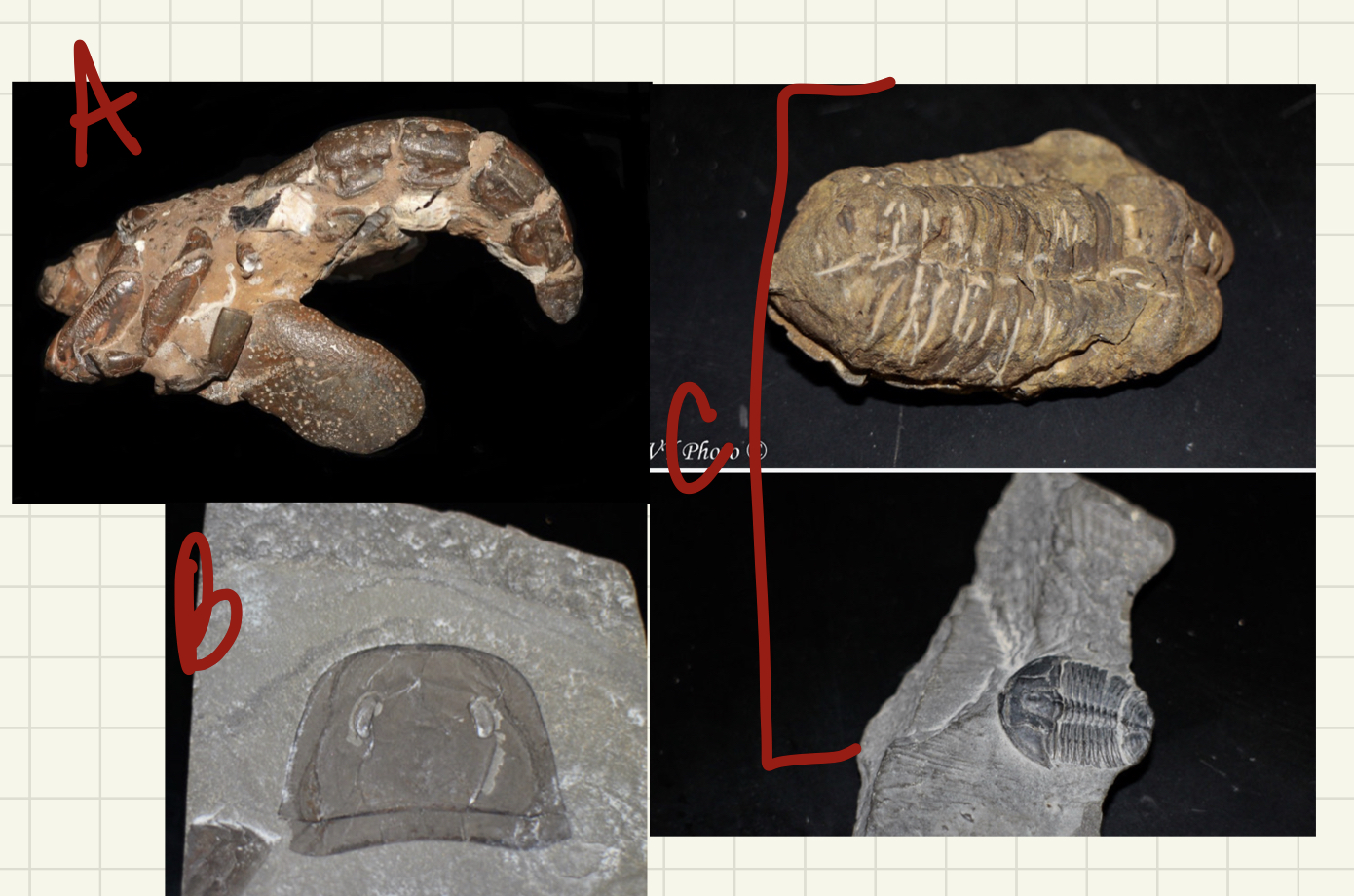
label the fossils
thalassina, eurypterid, trilobite
82
New cards
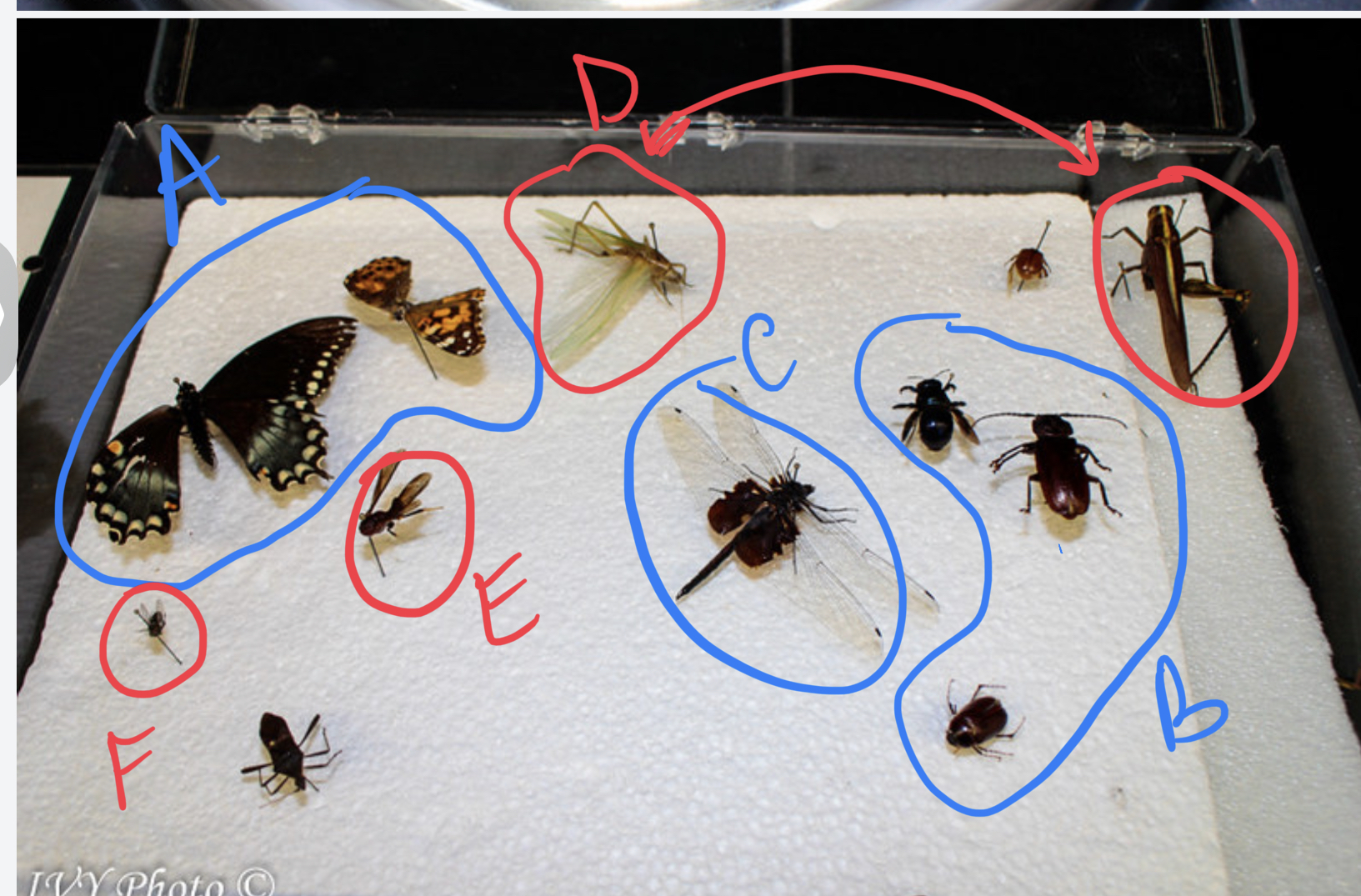
label the insects by order
lepidoptera, **coleoptera**, odonata, orthoptera, hymenoptera, diptera